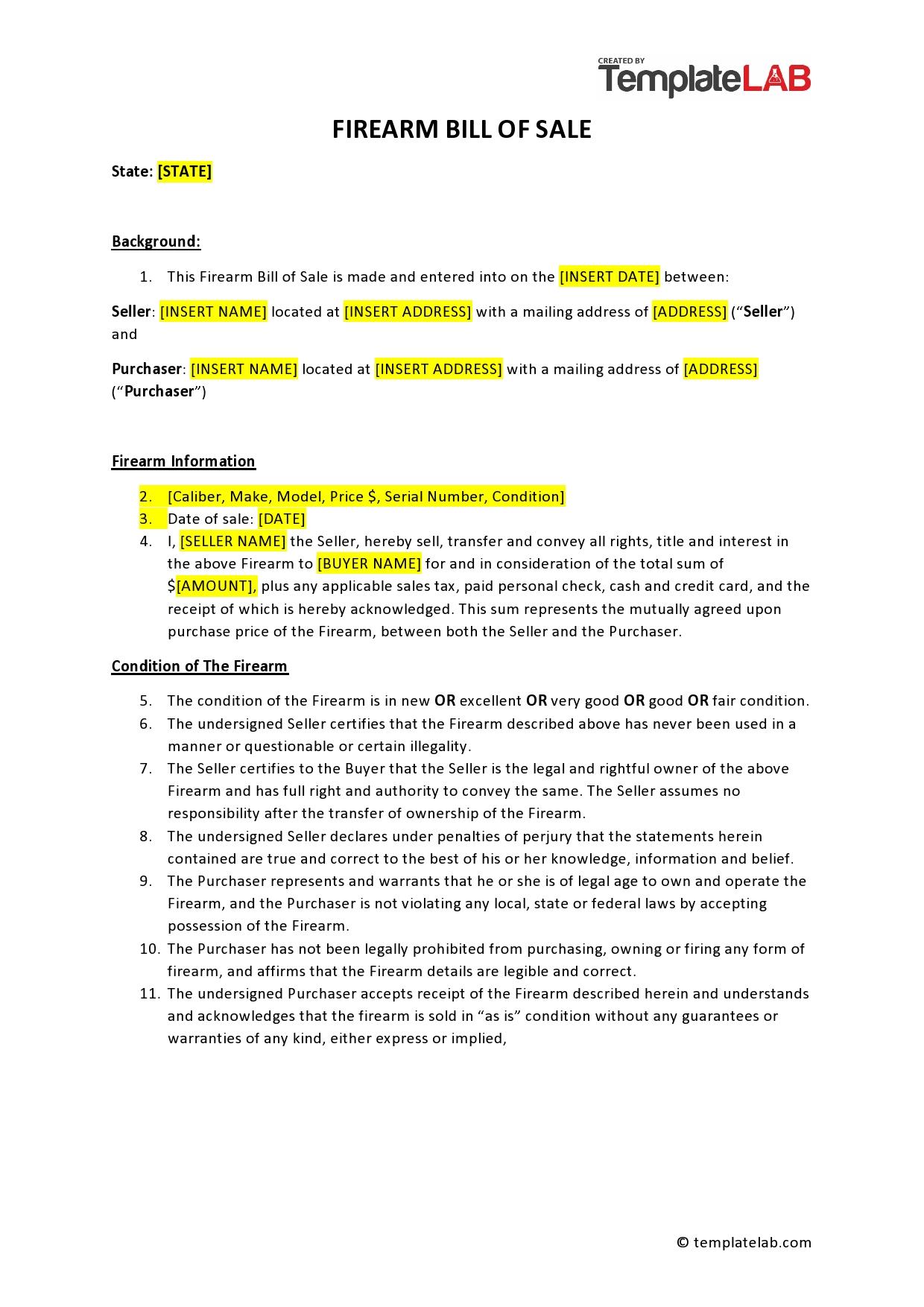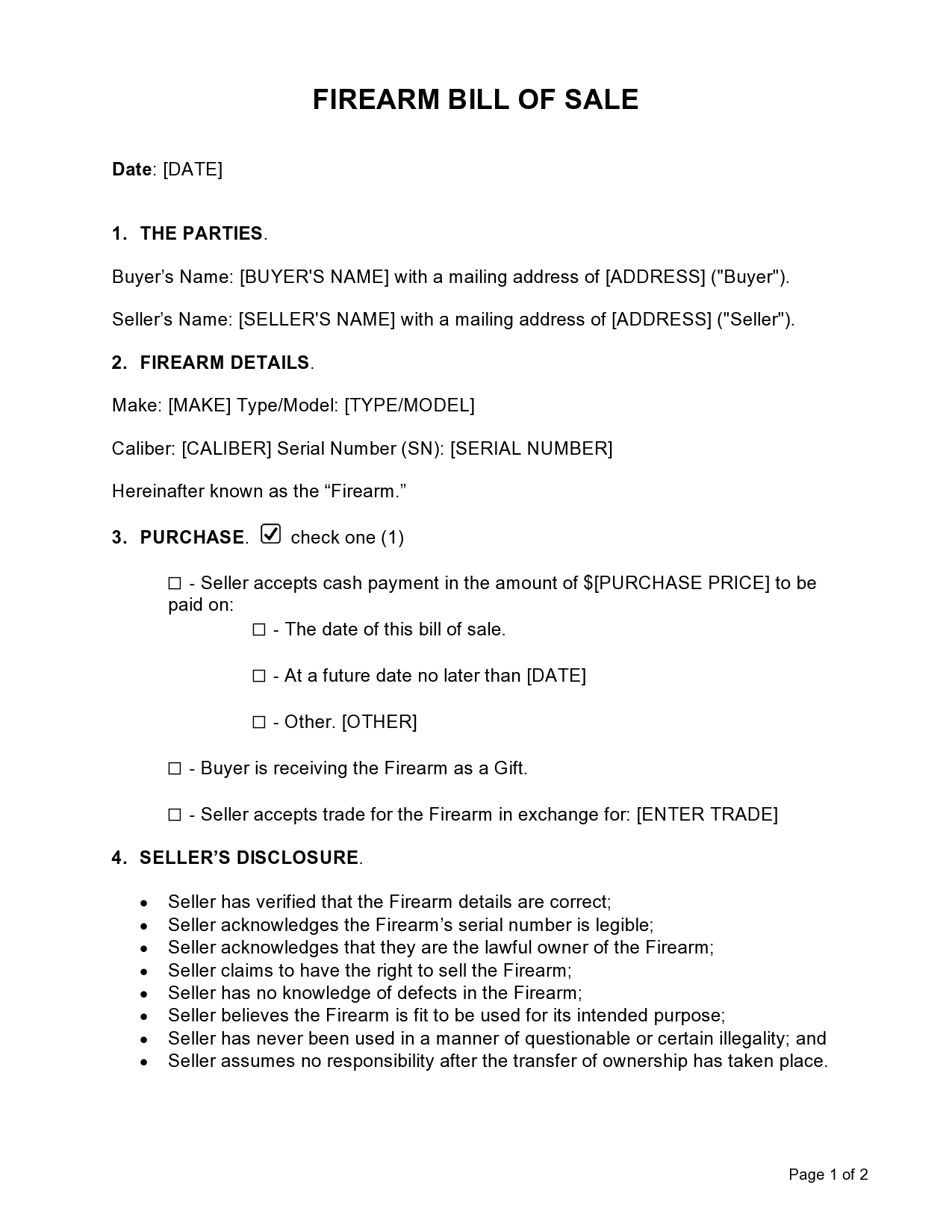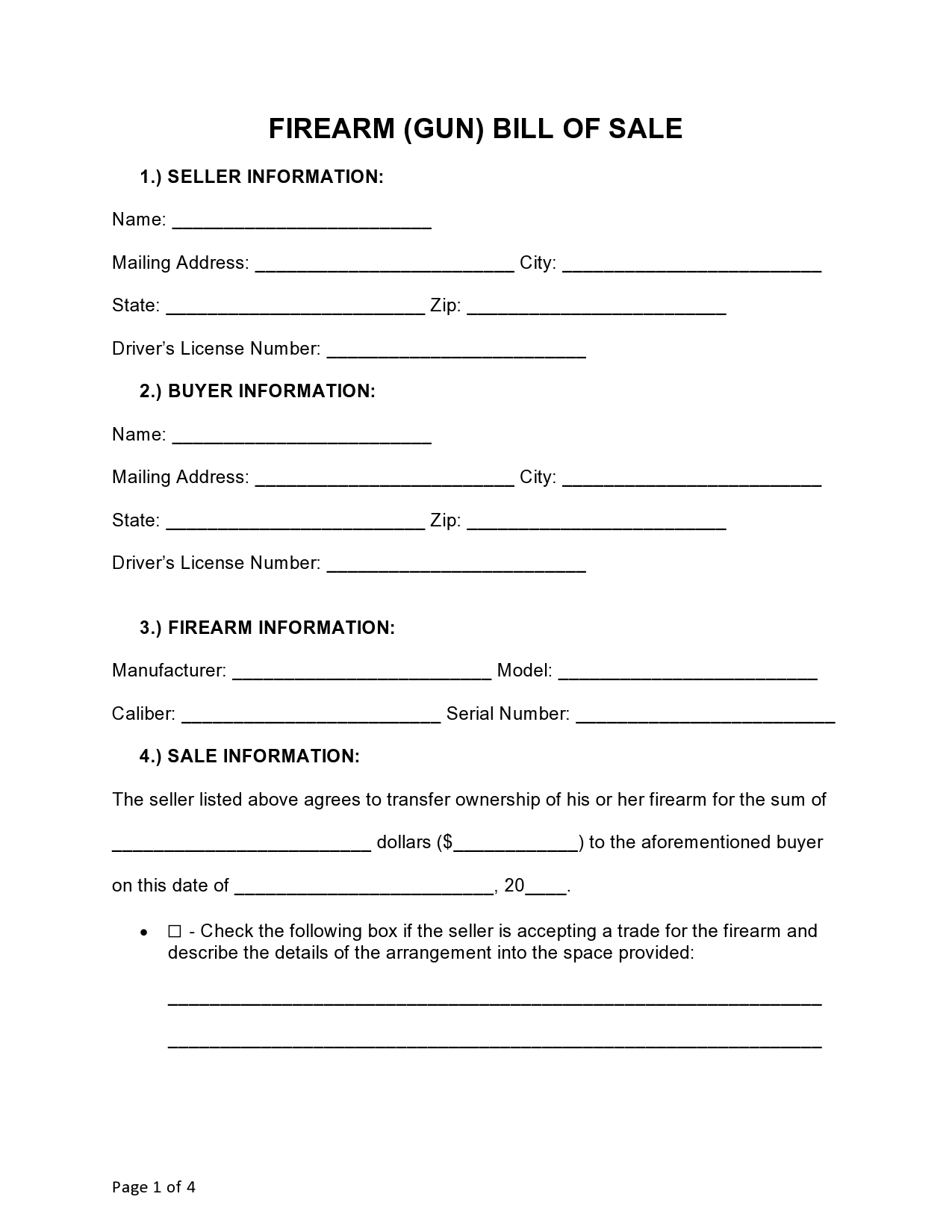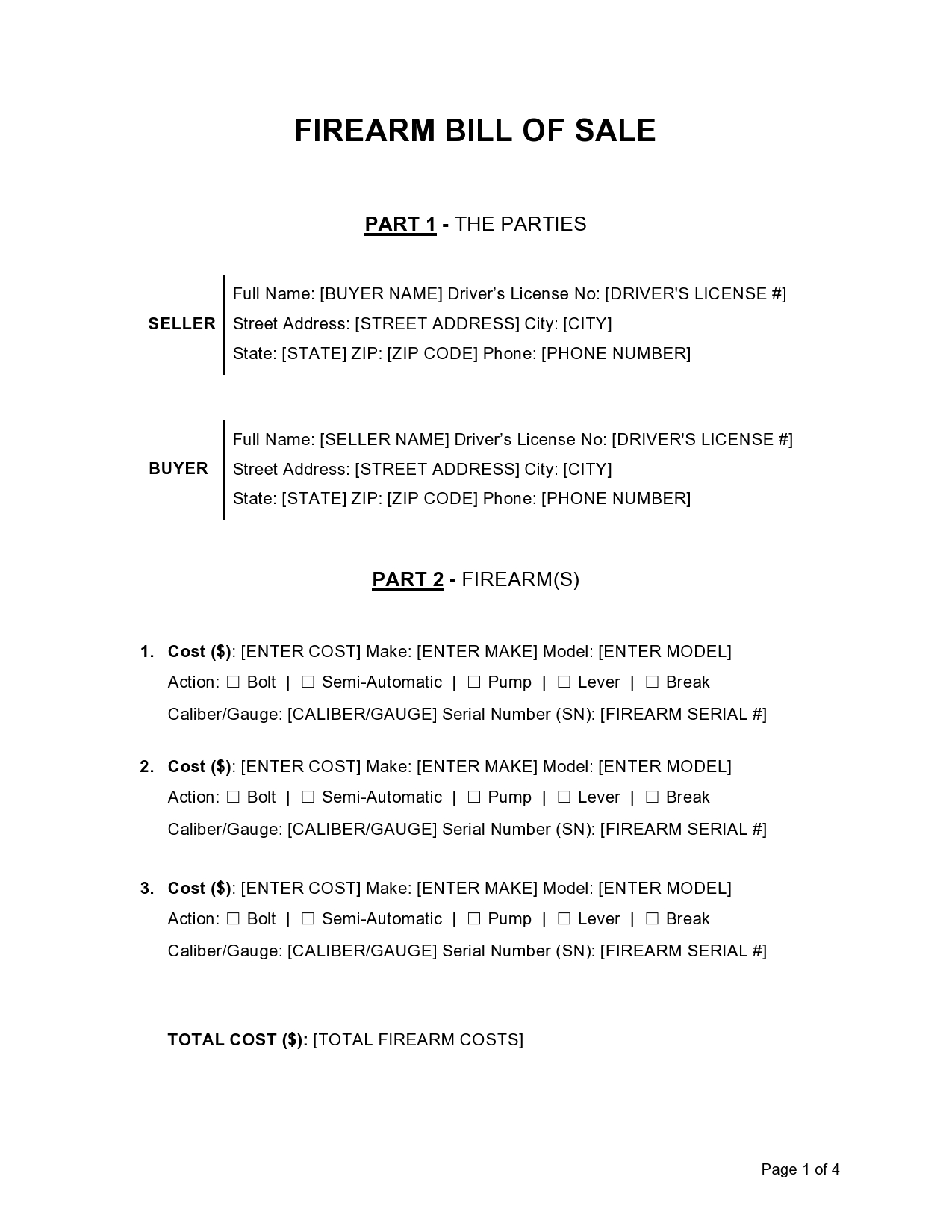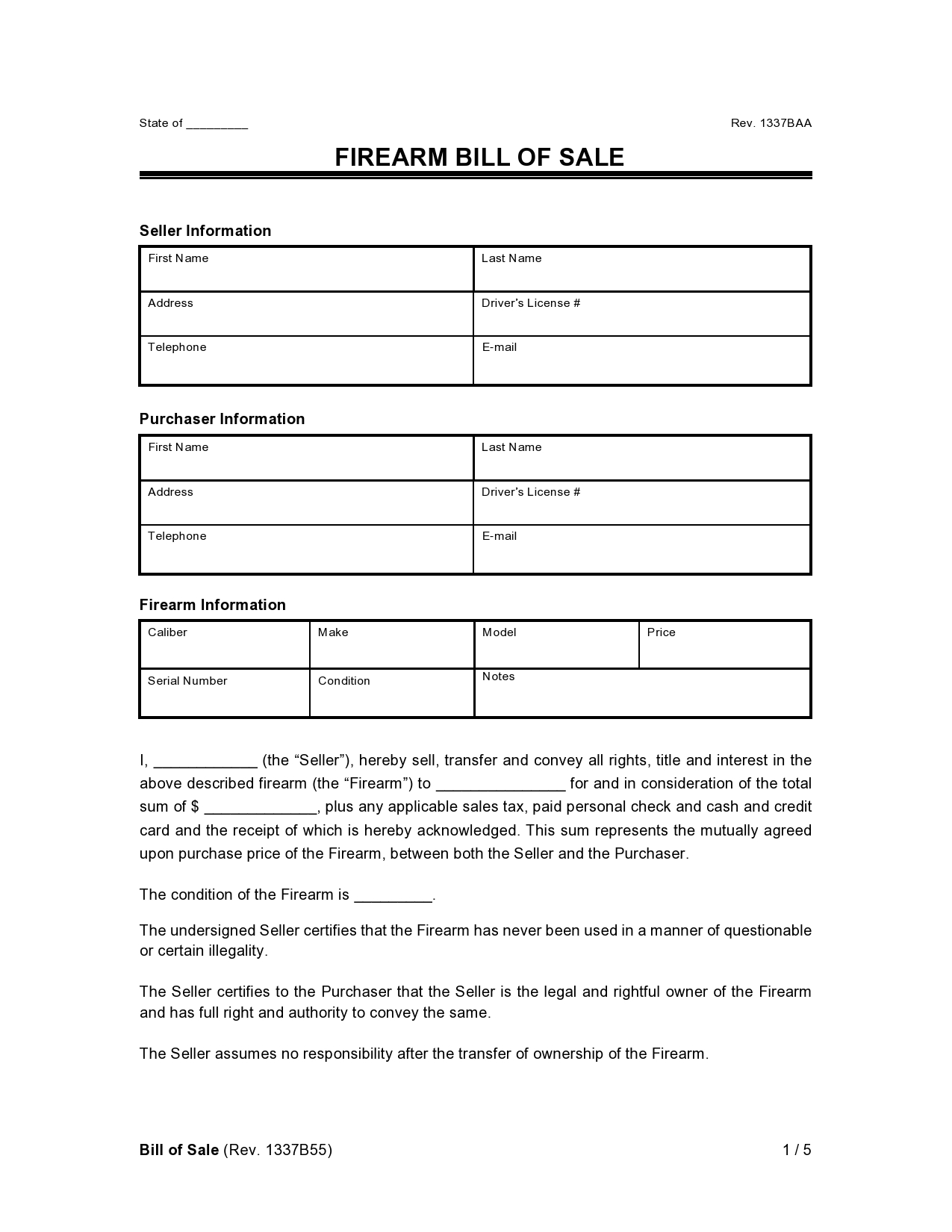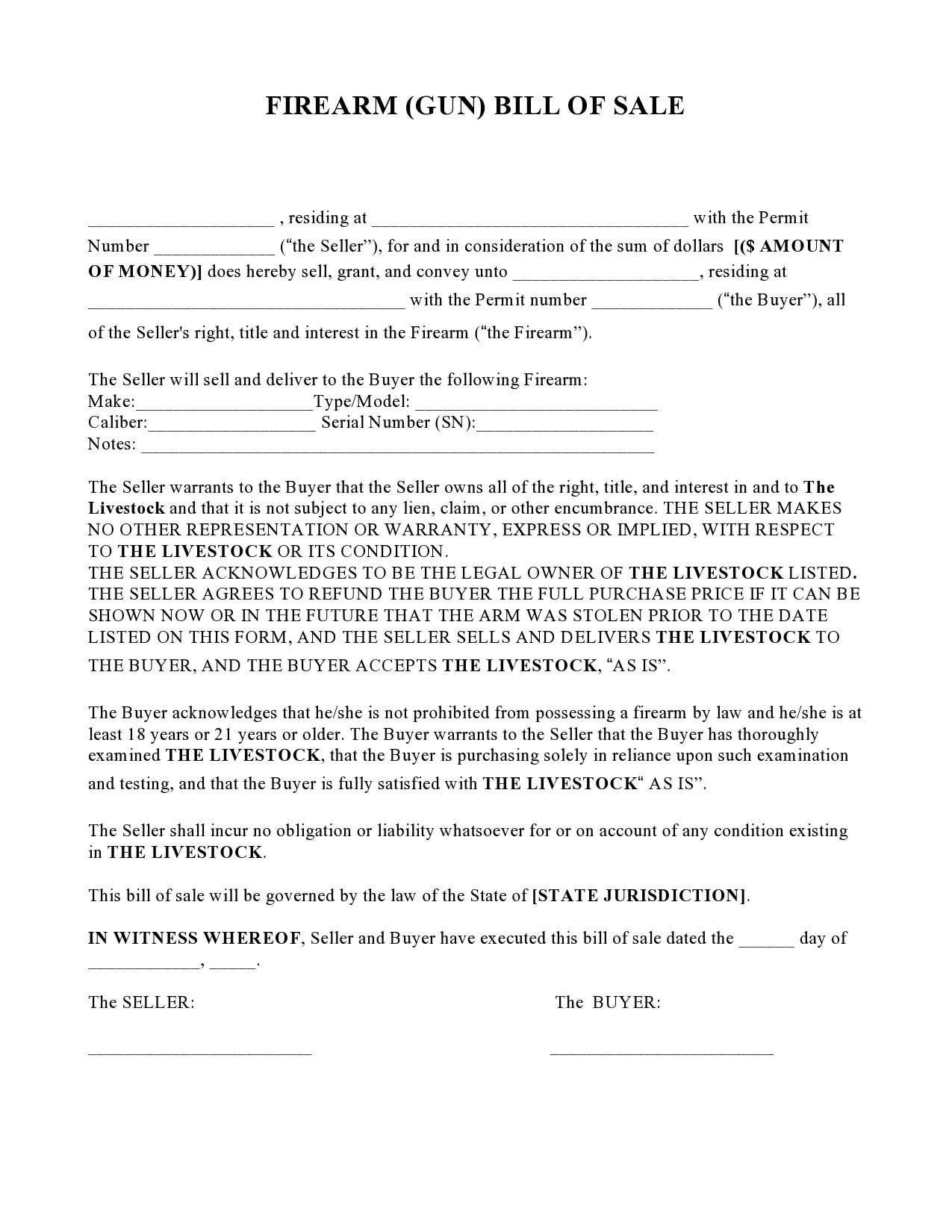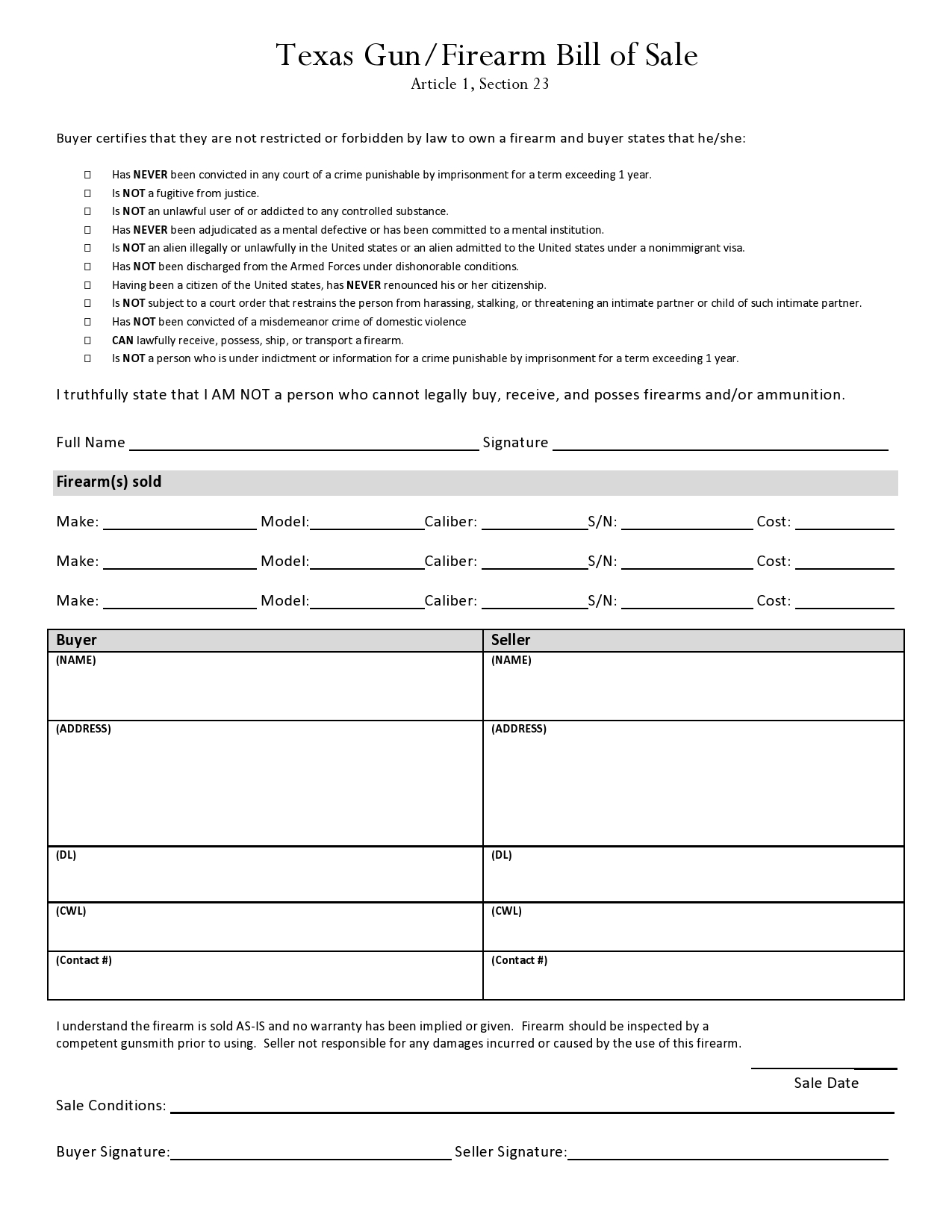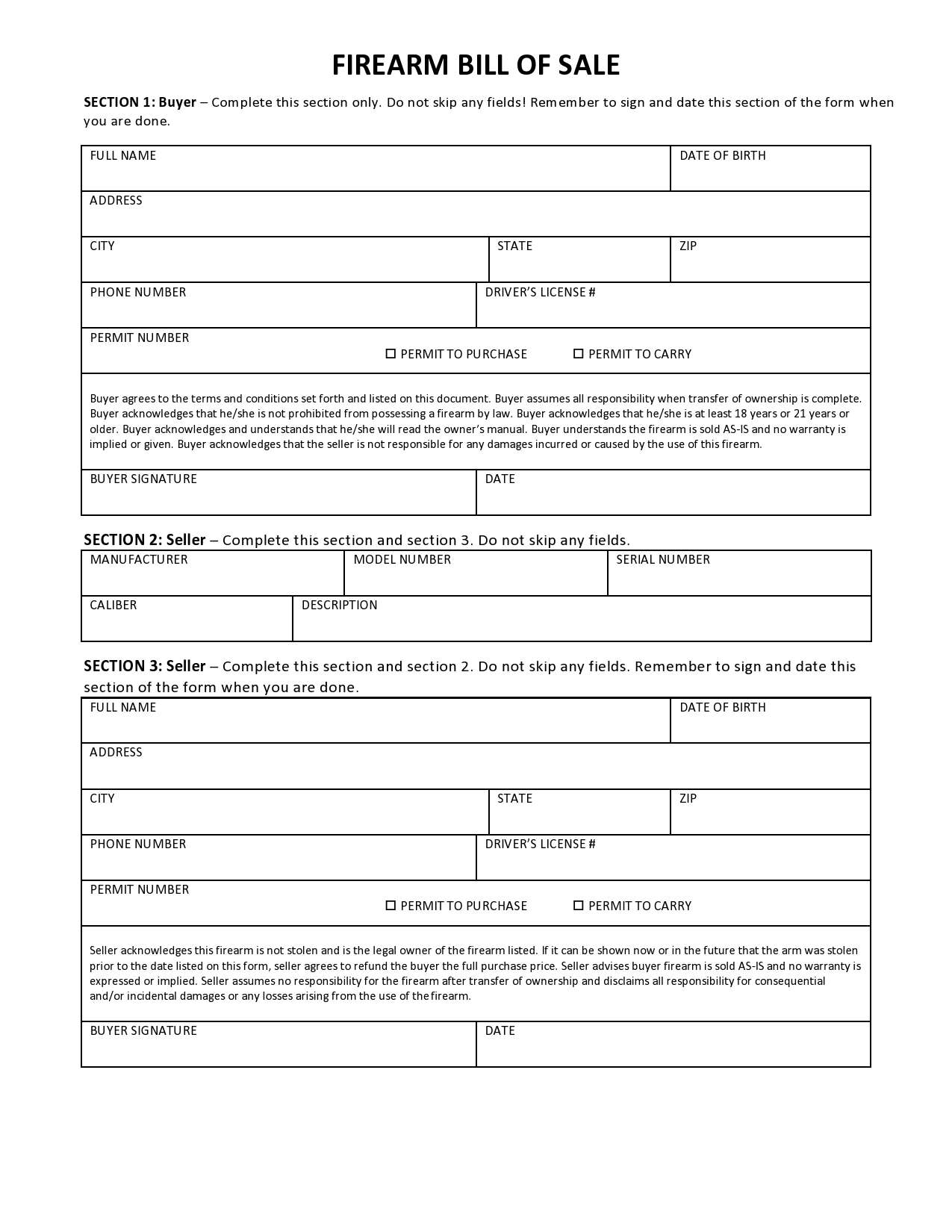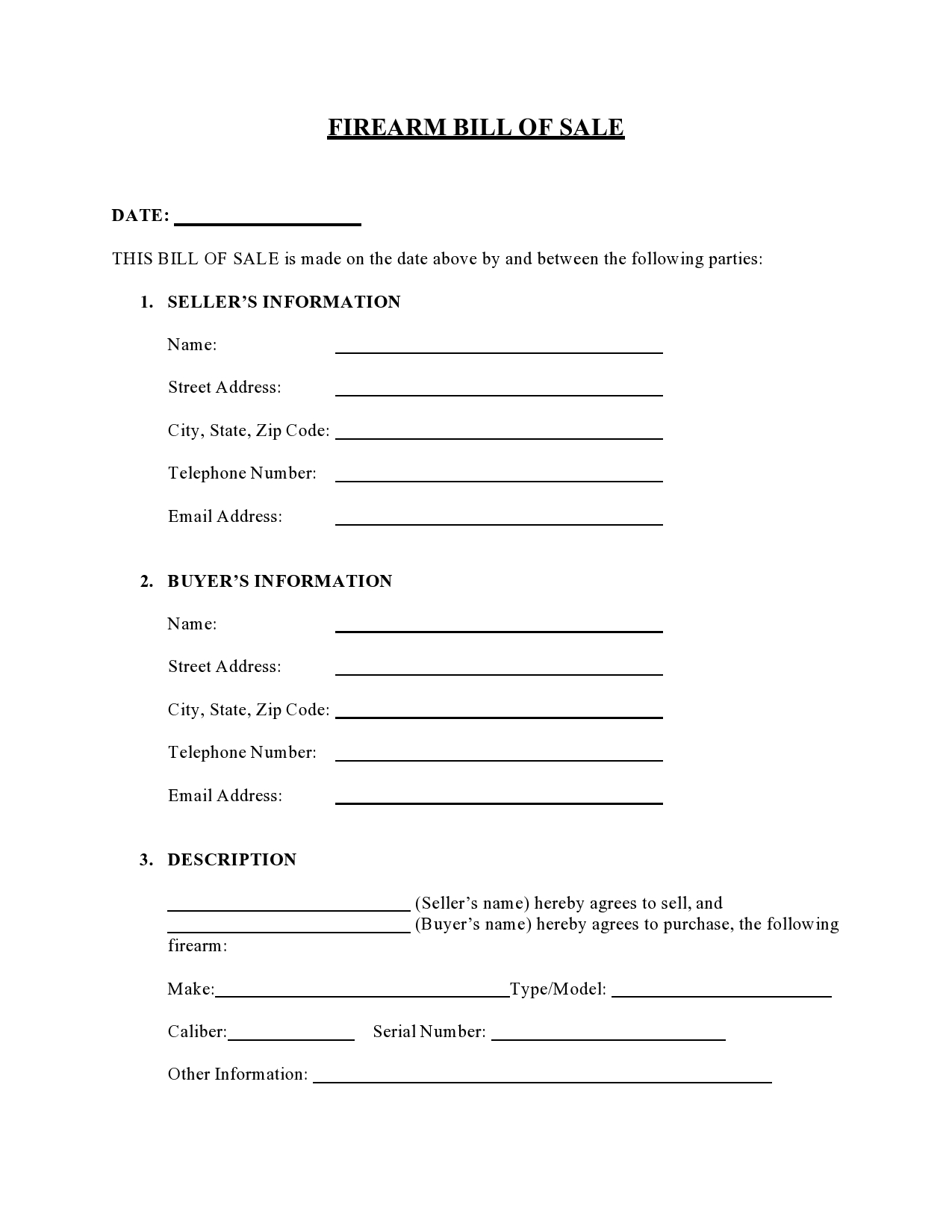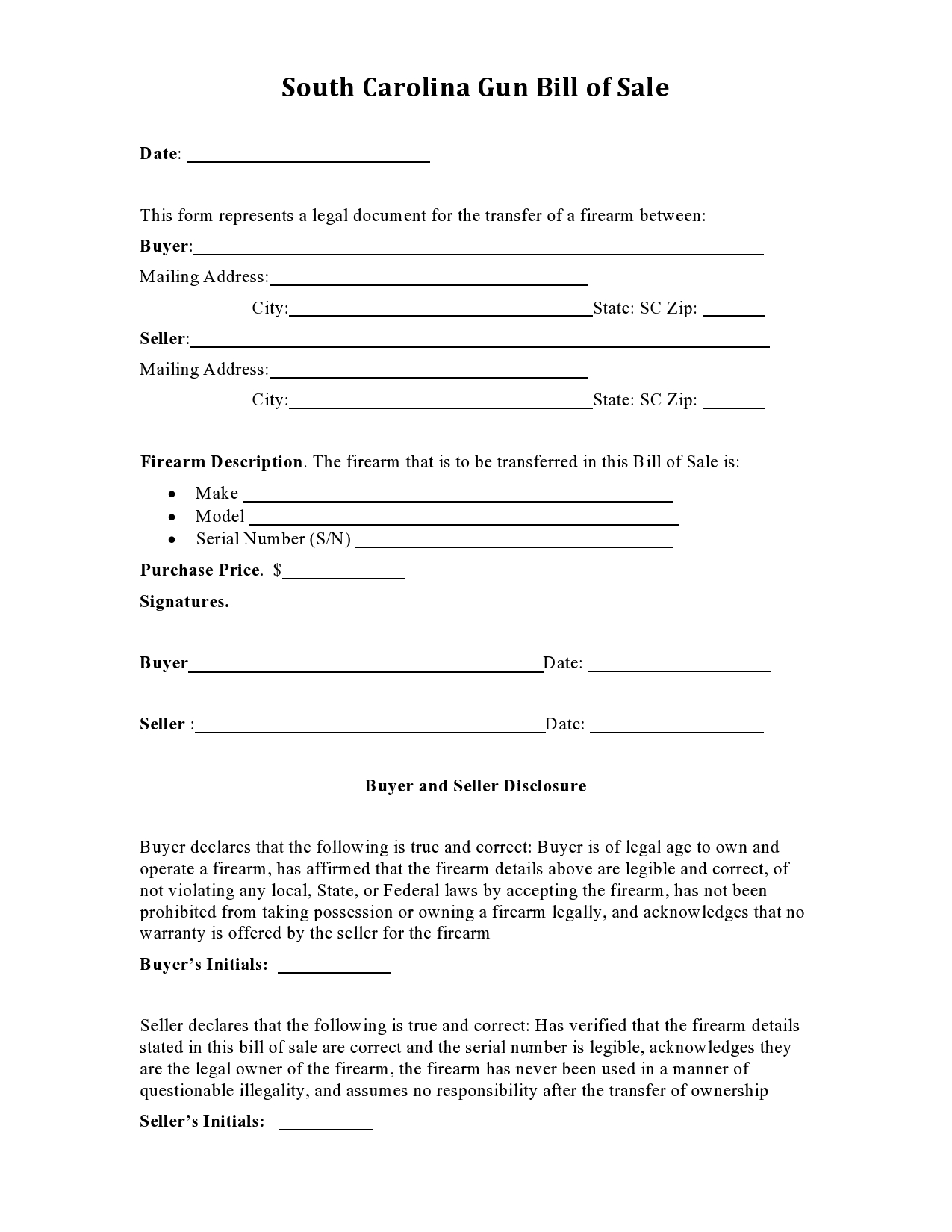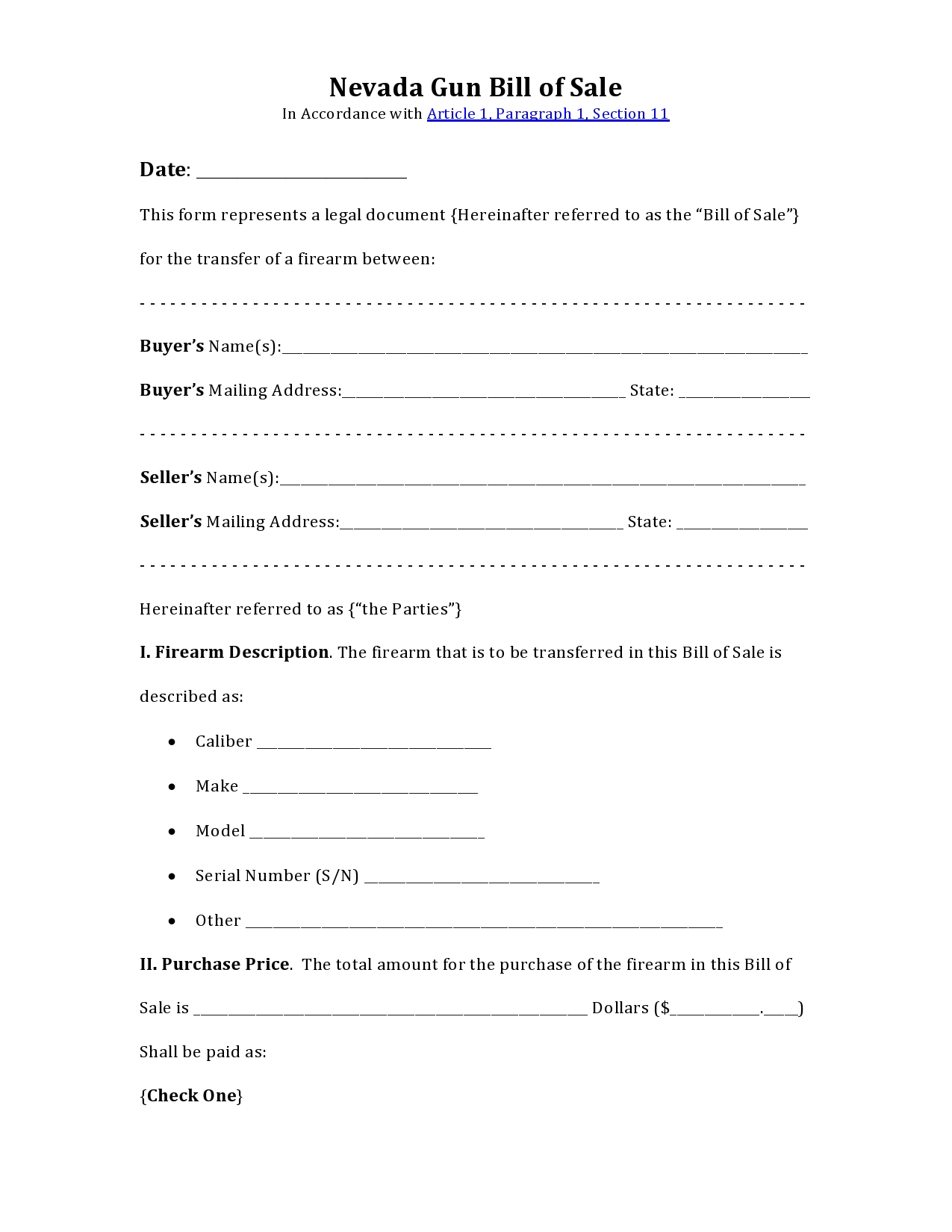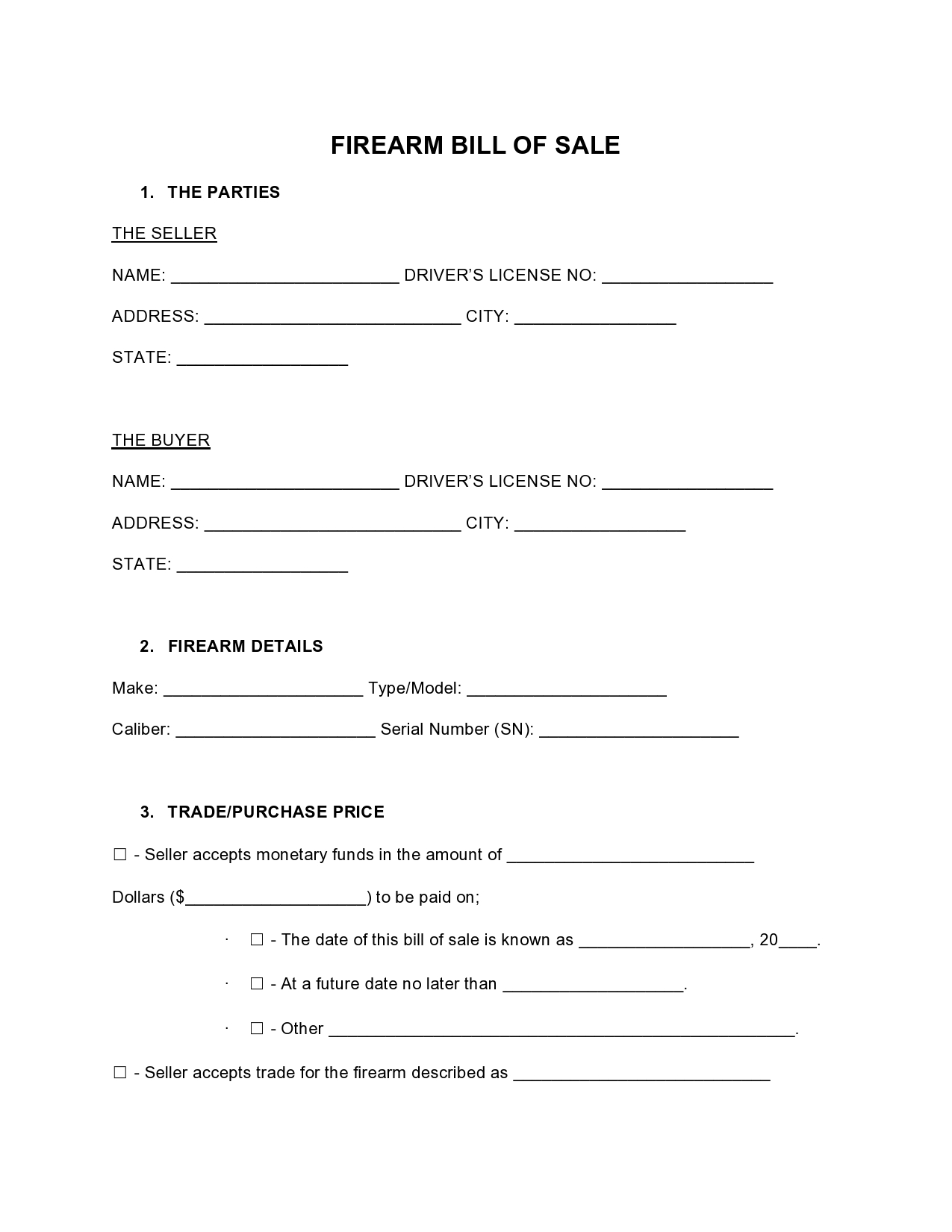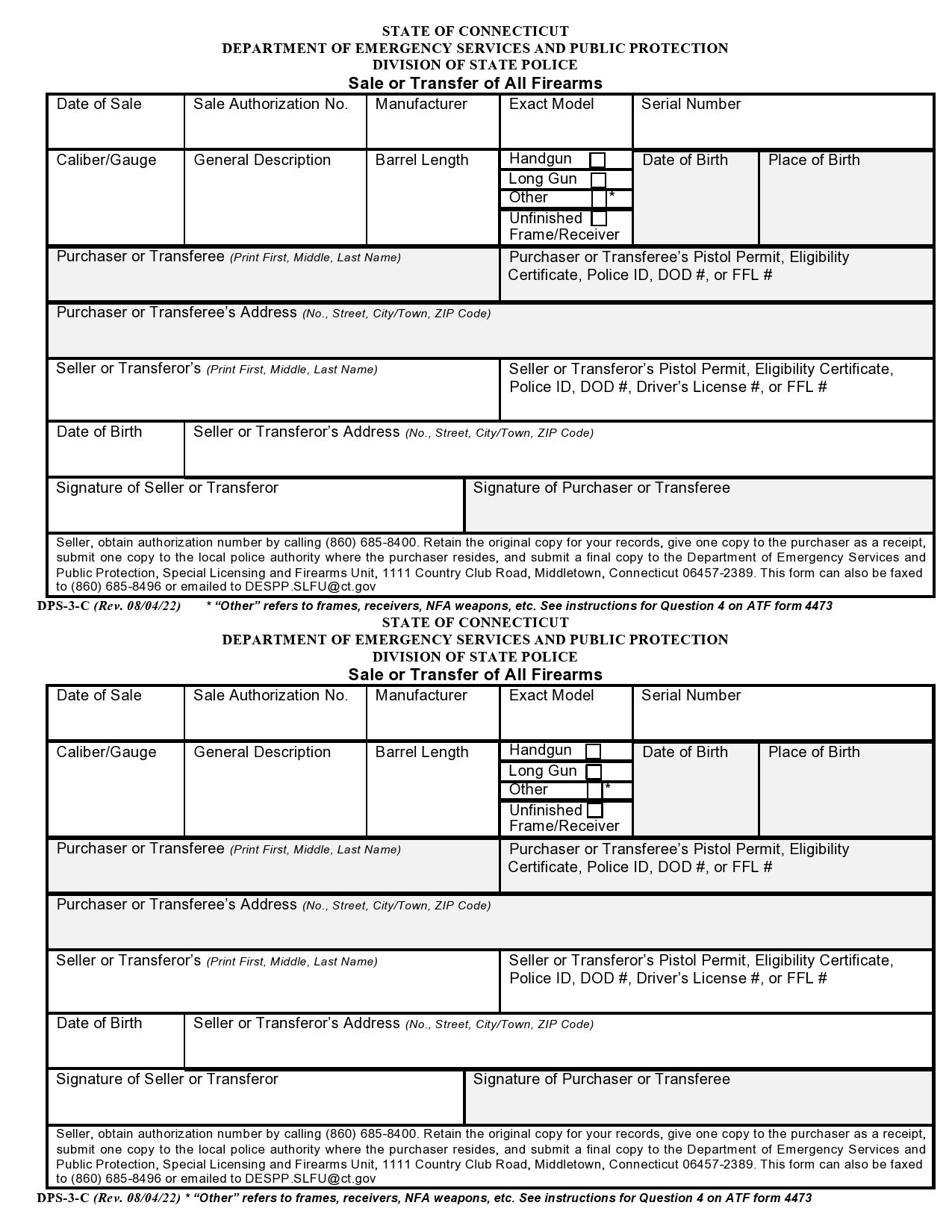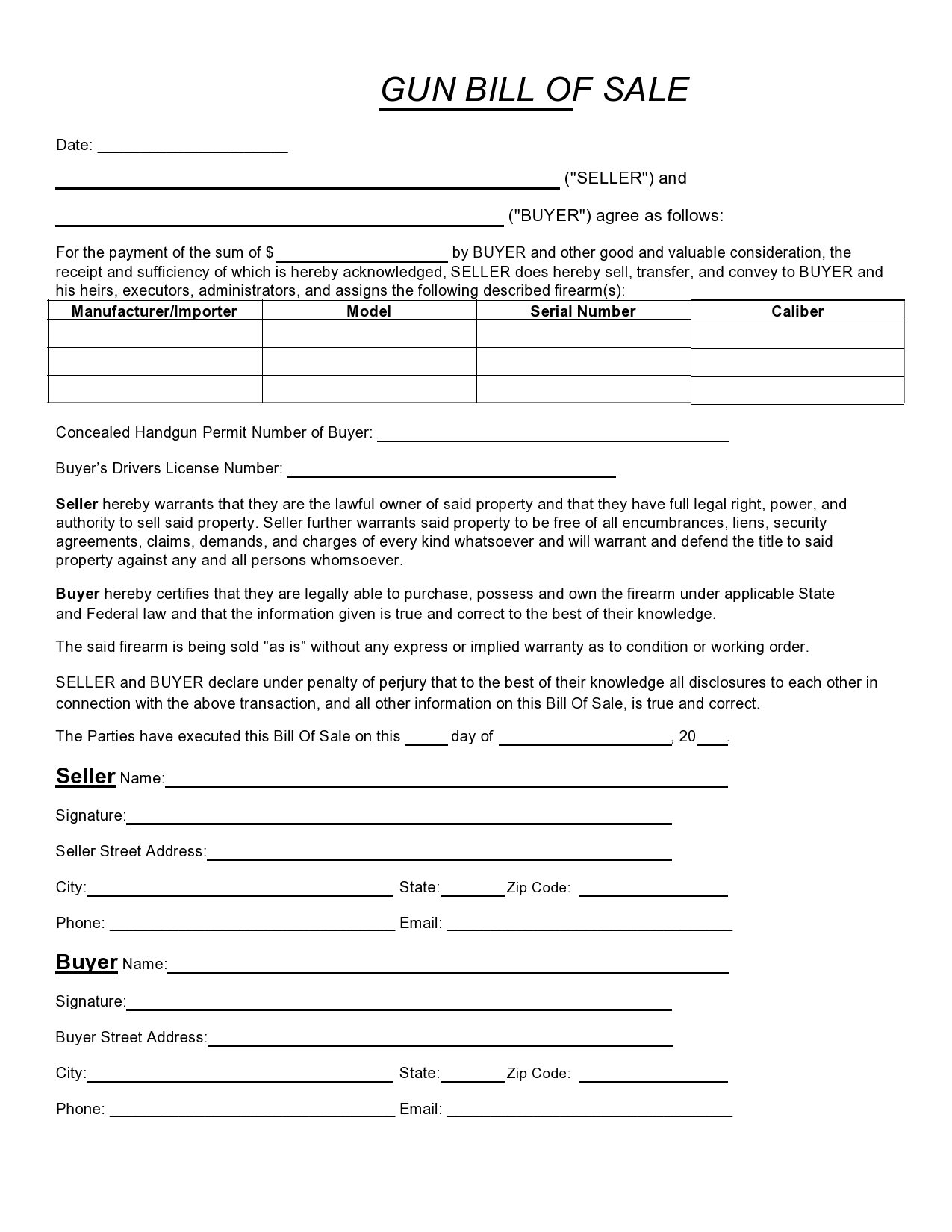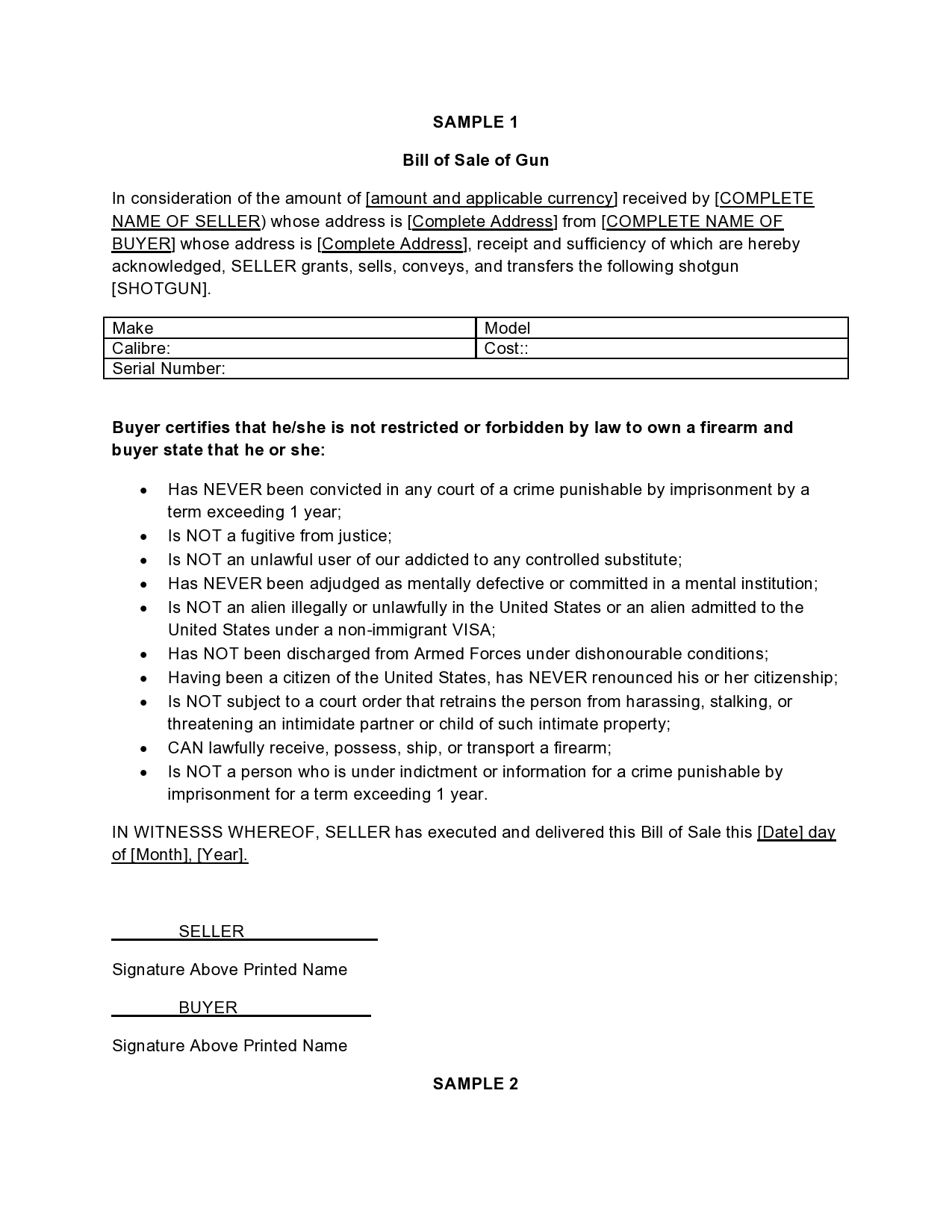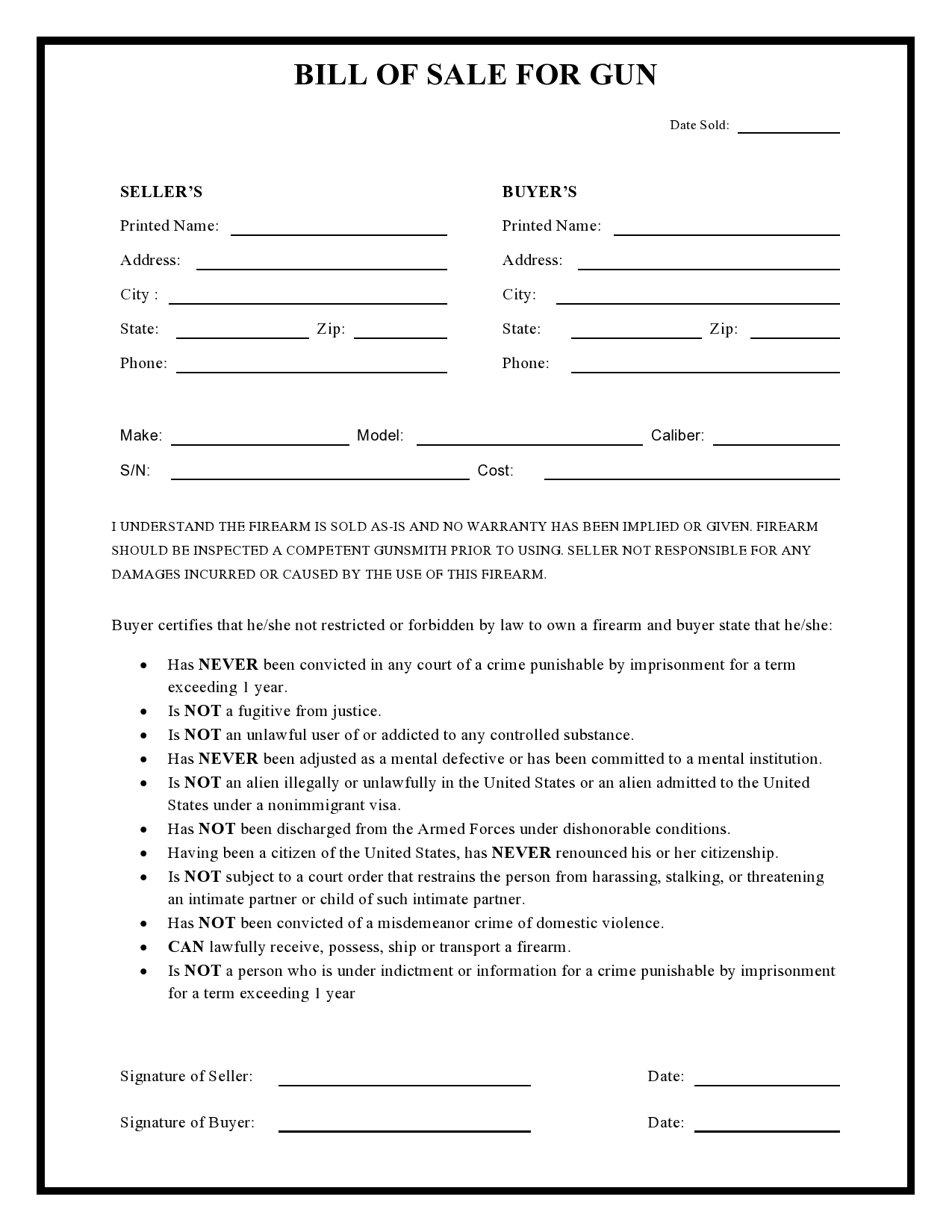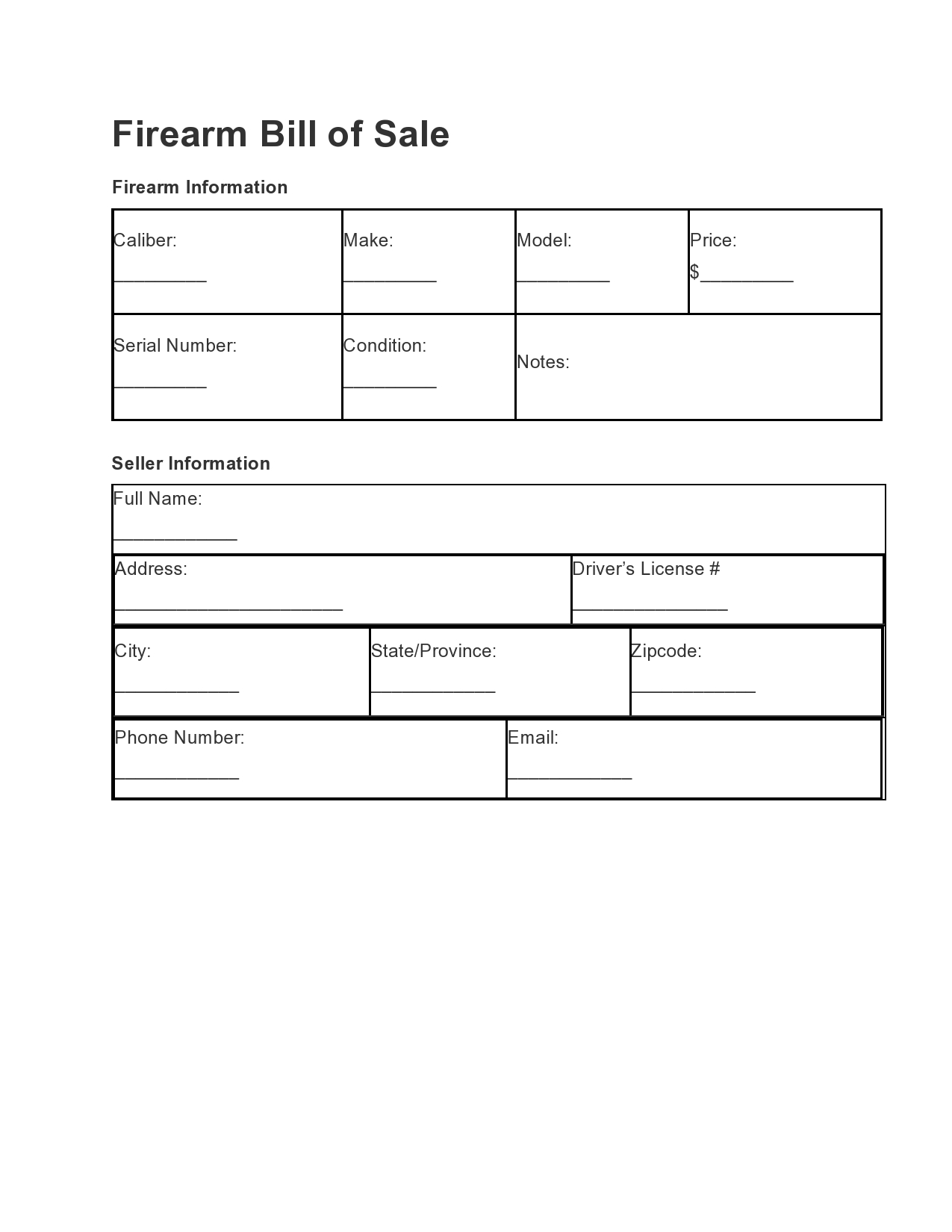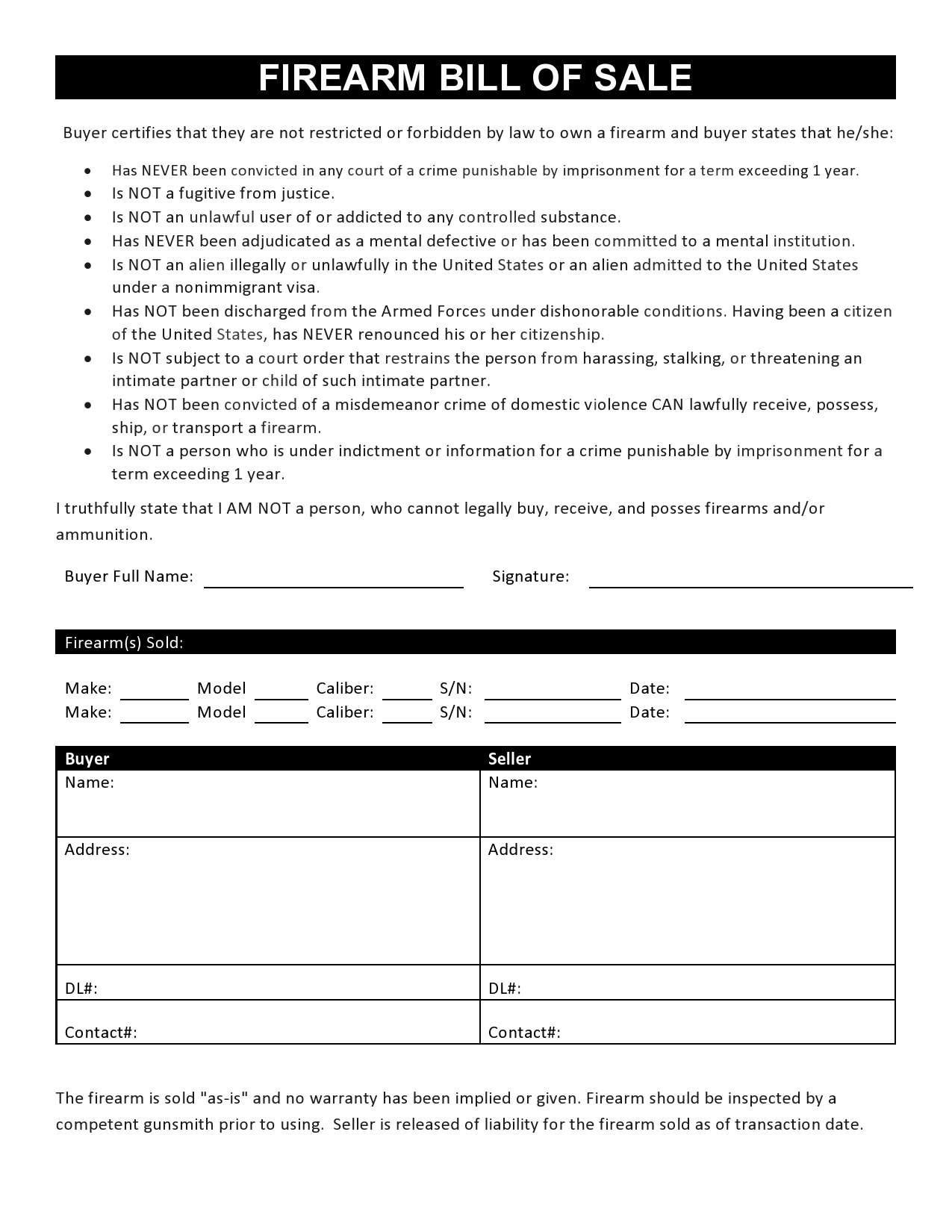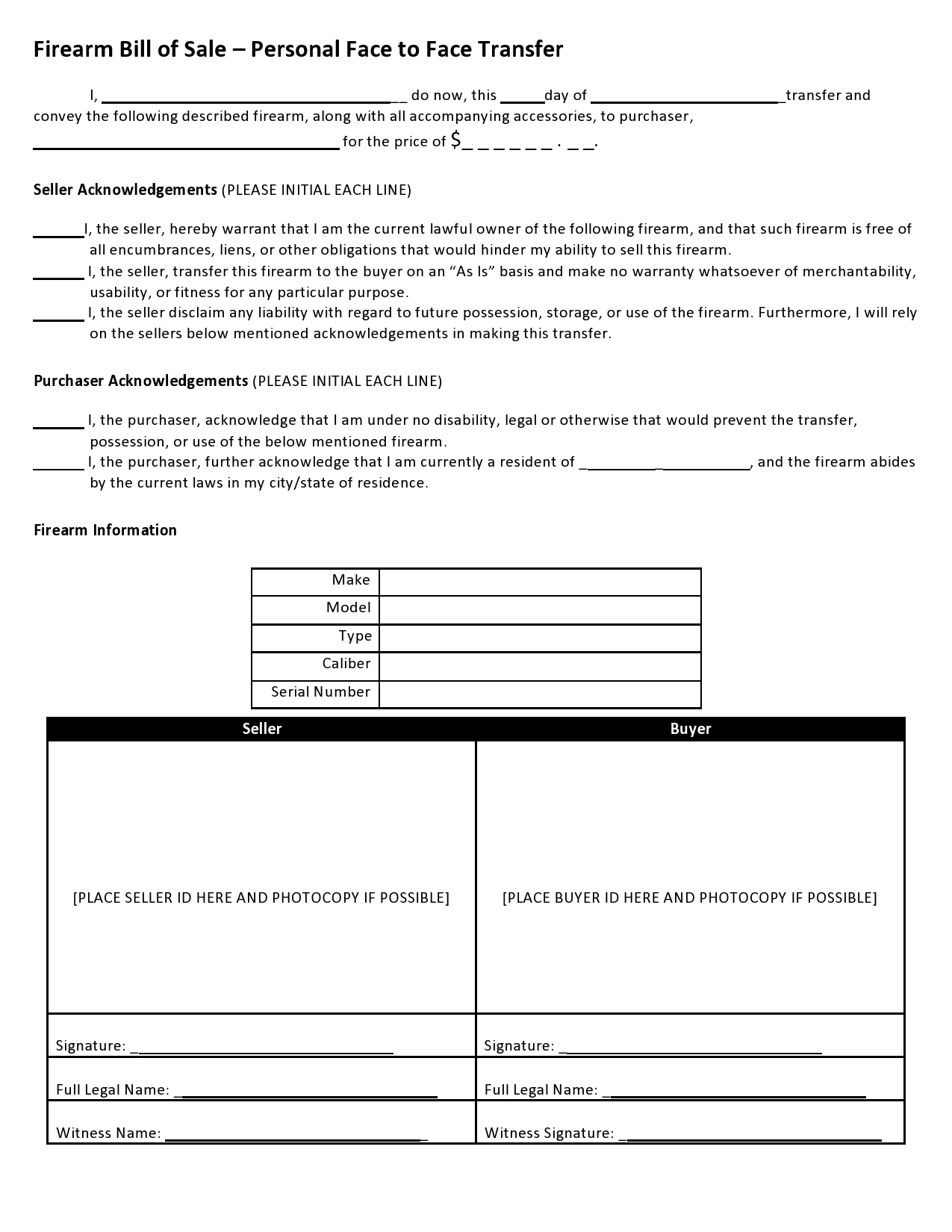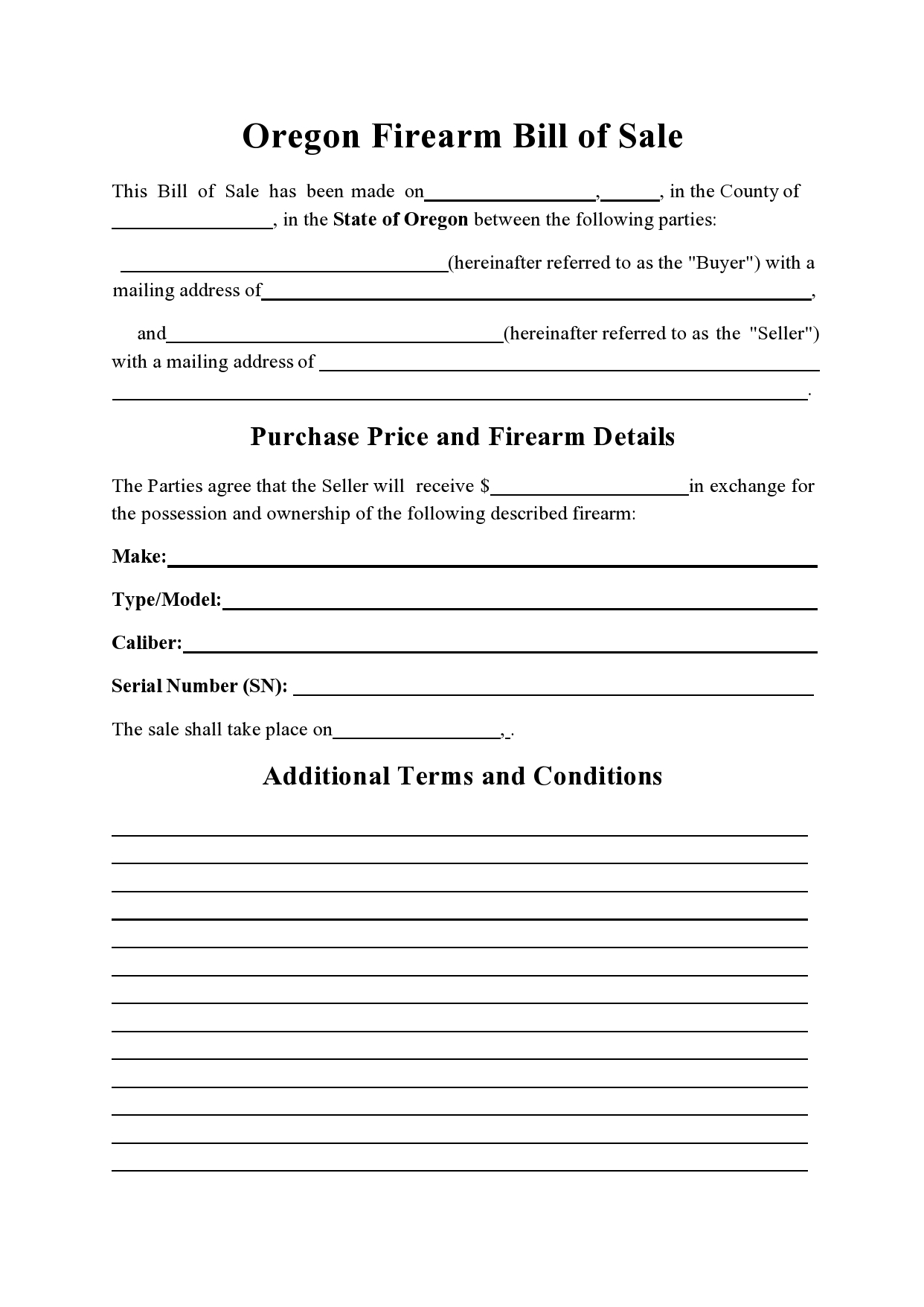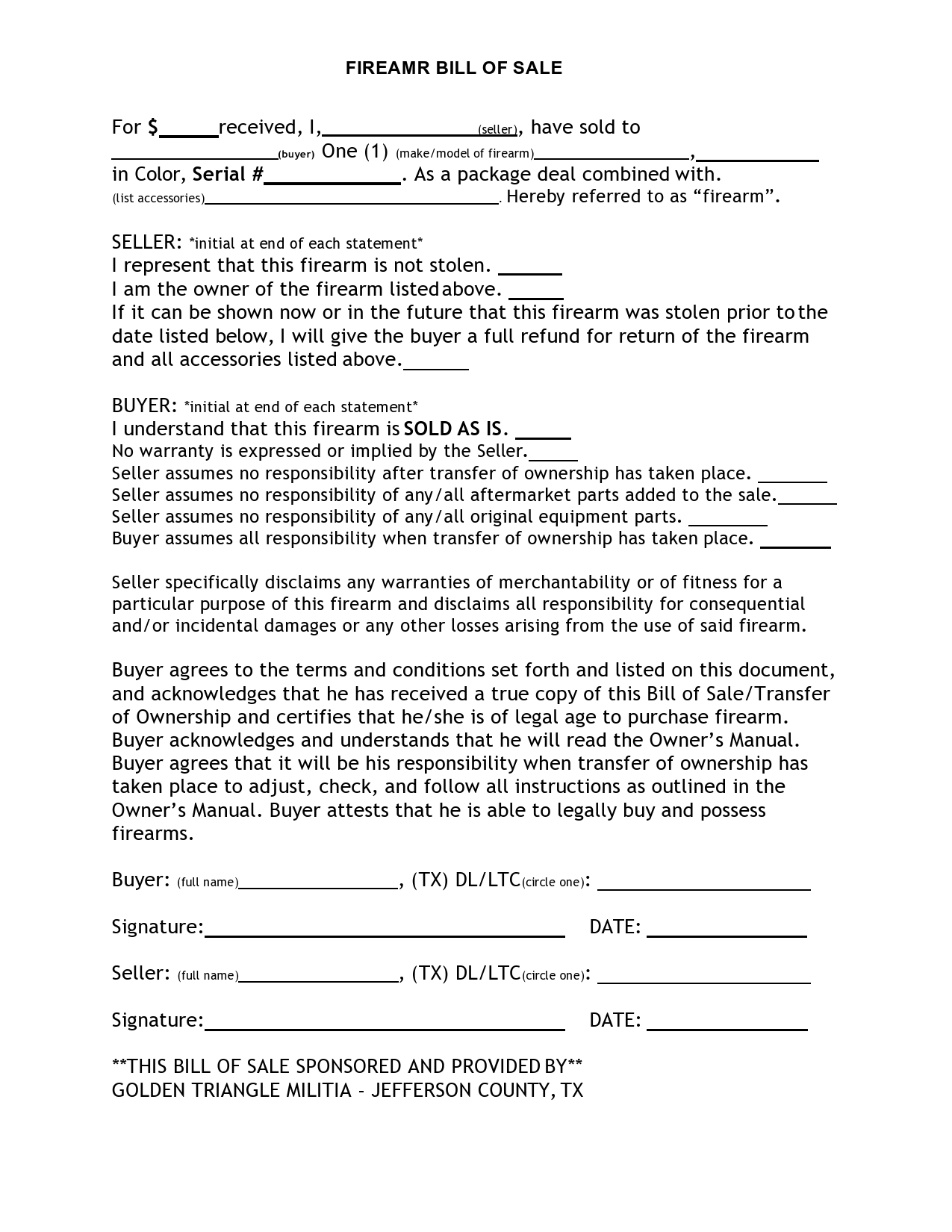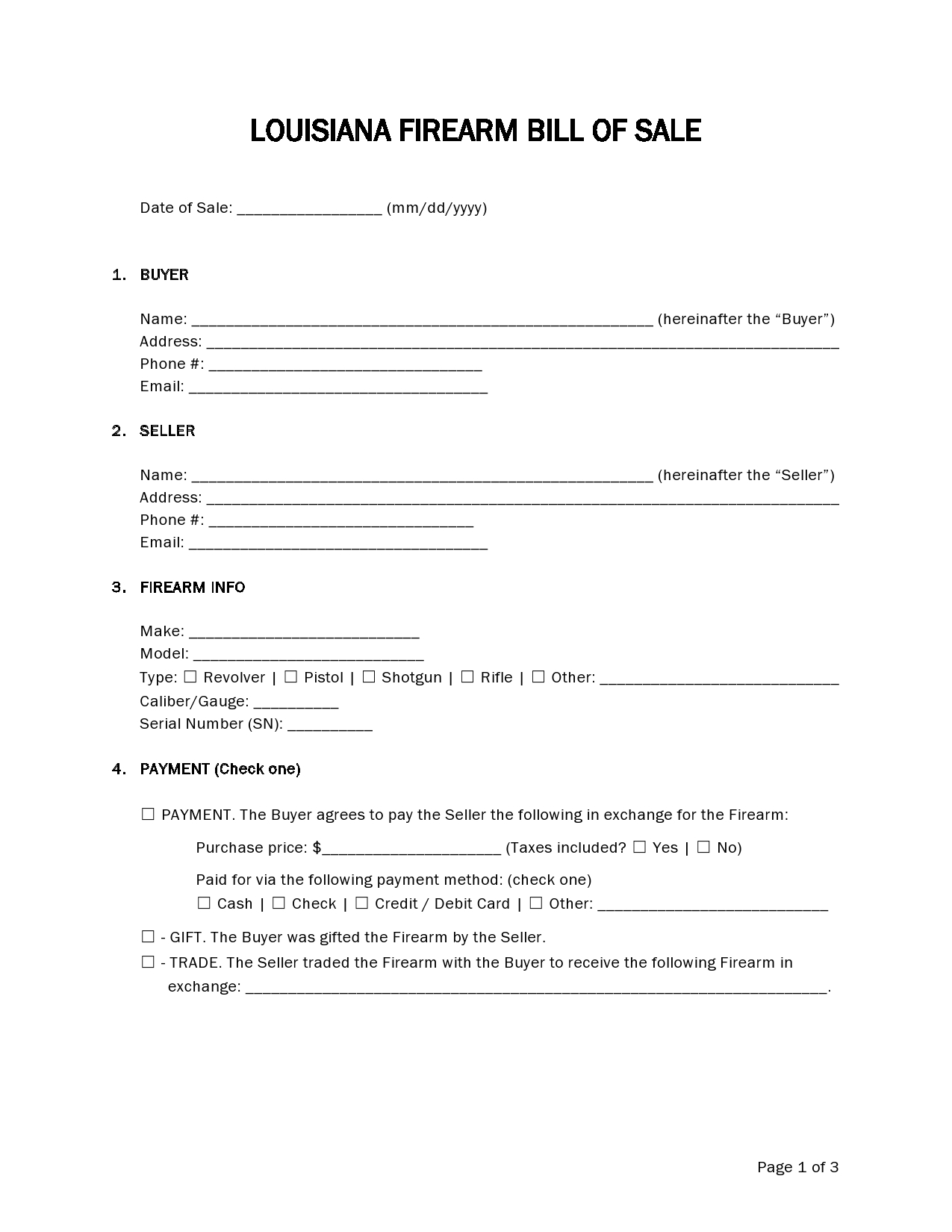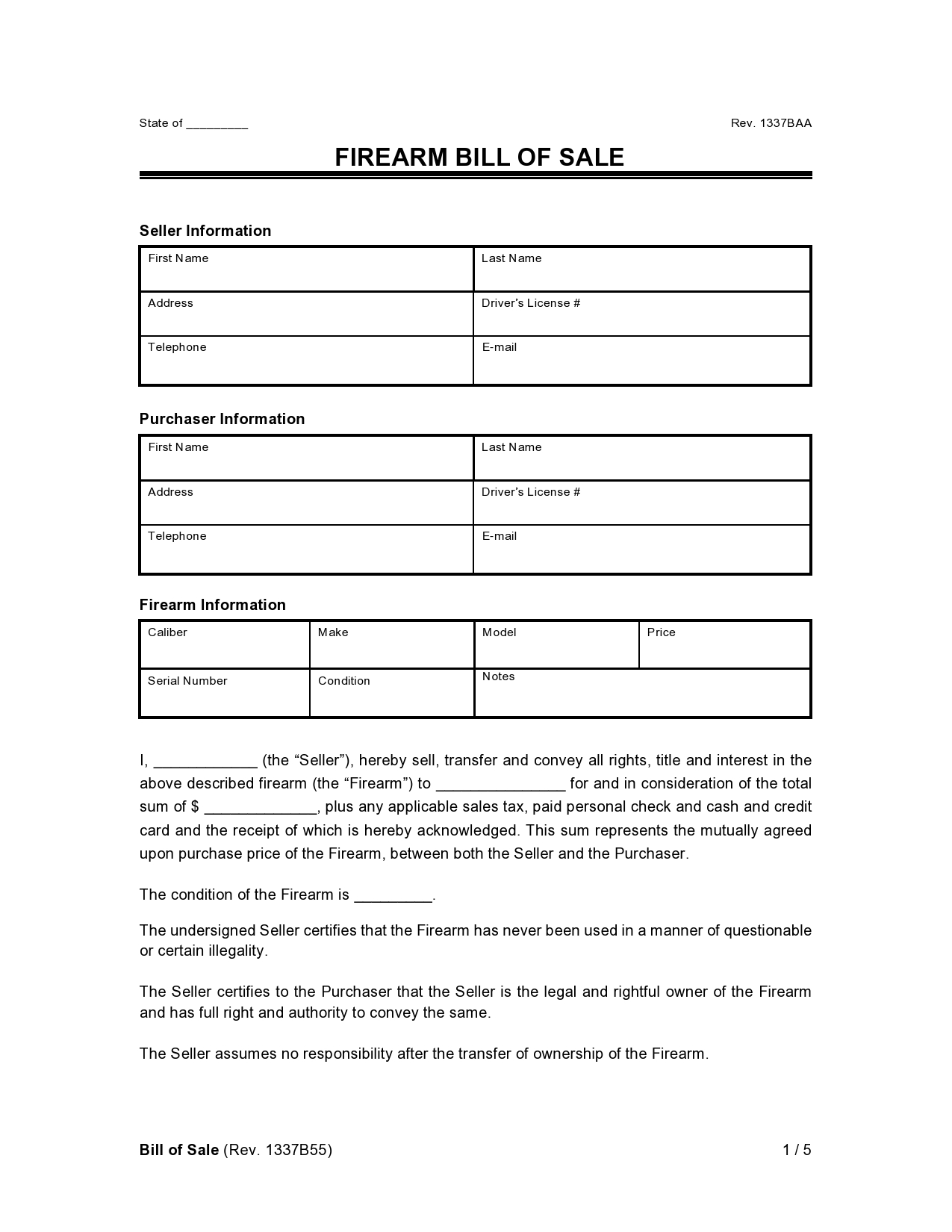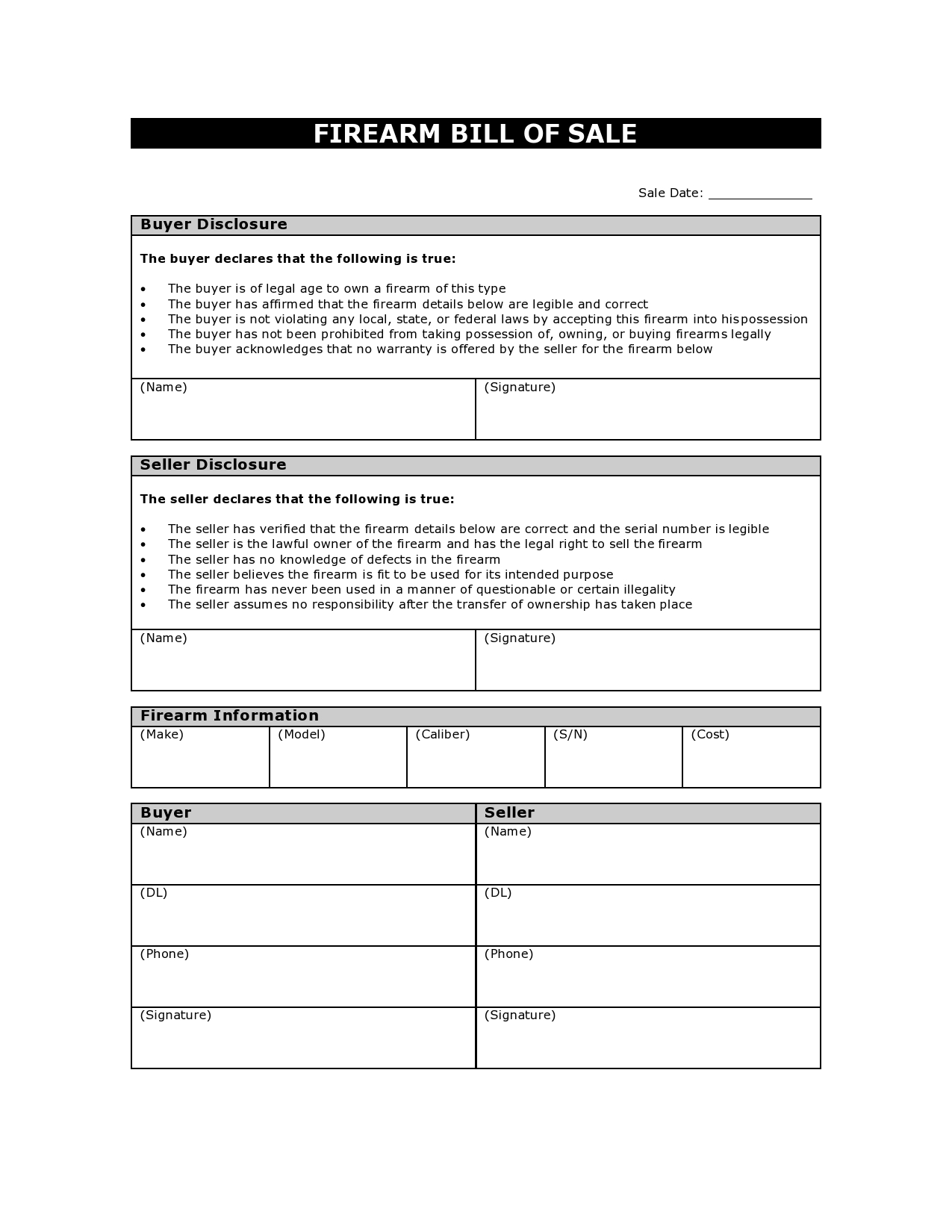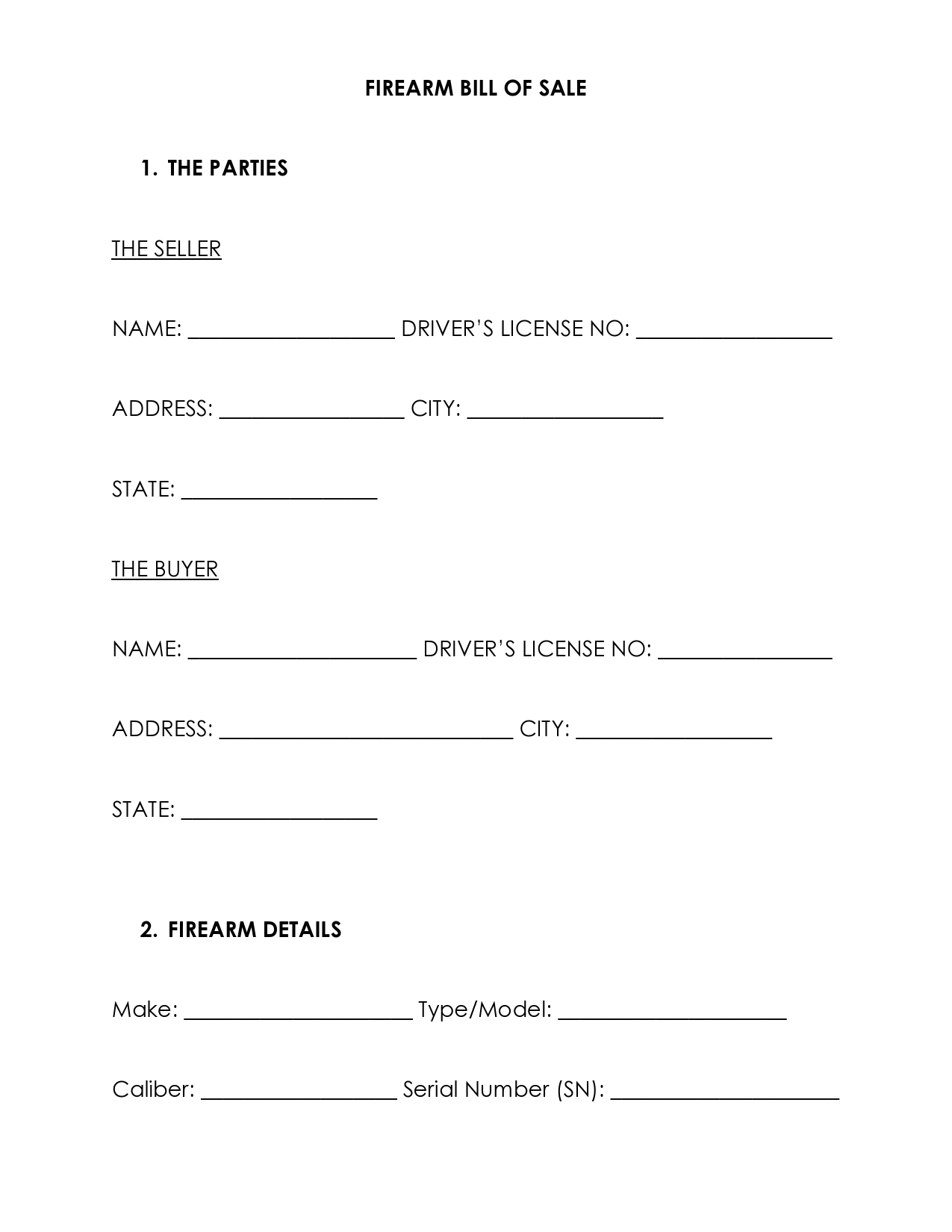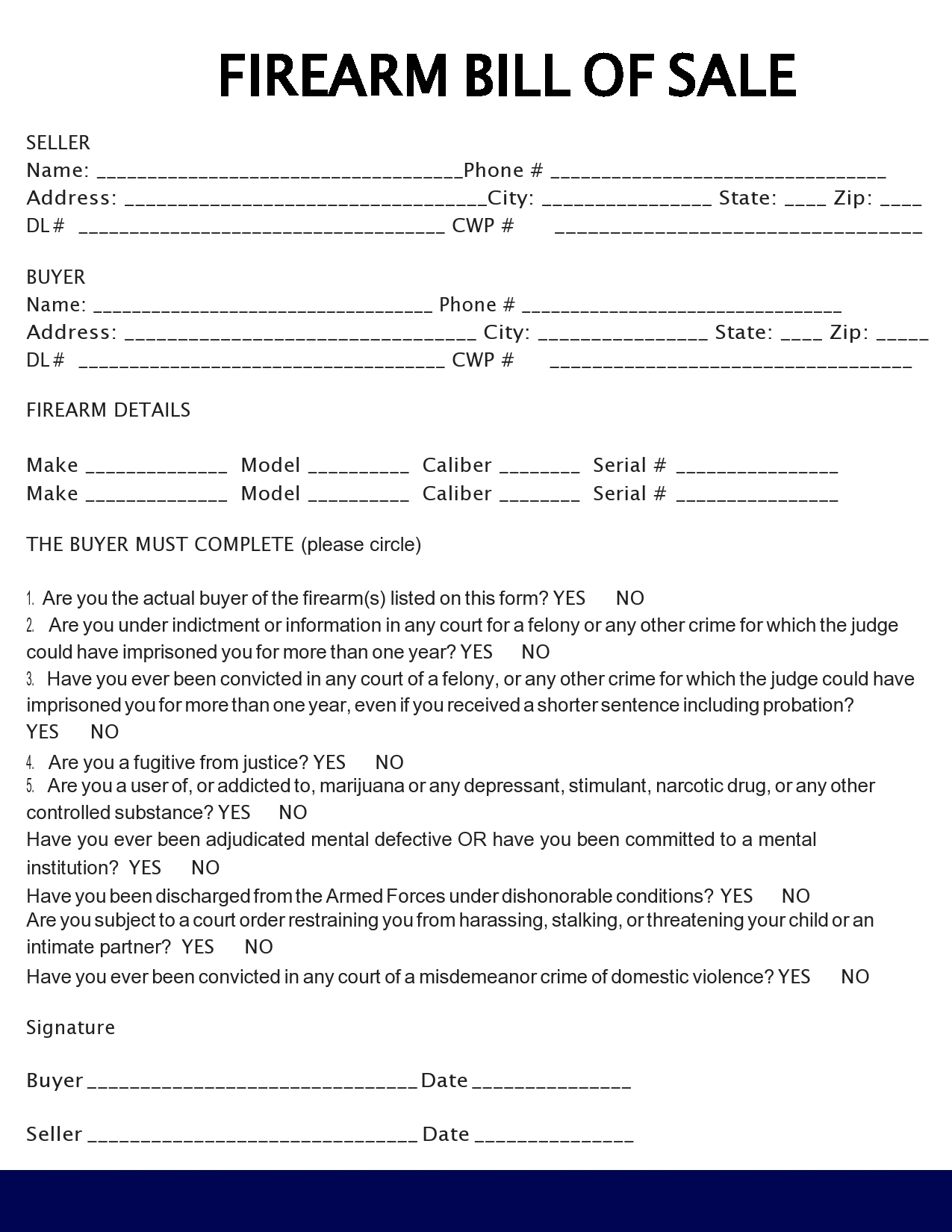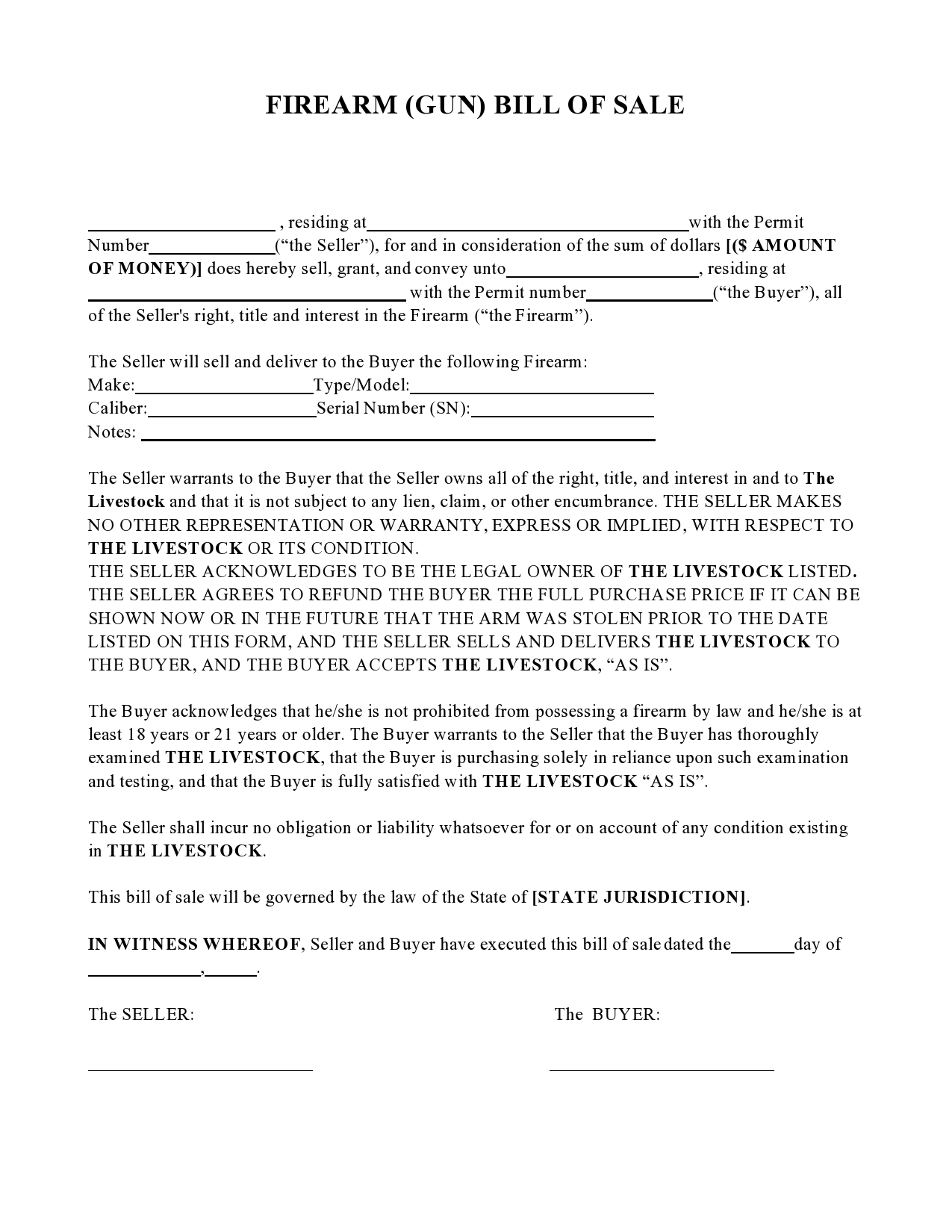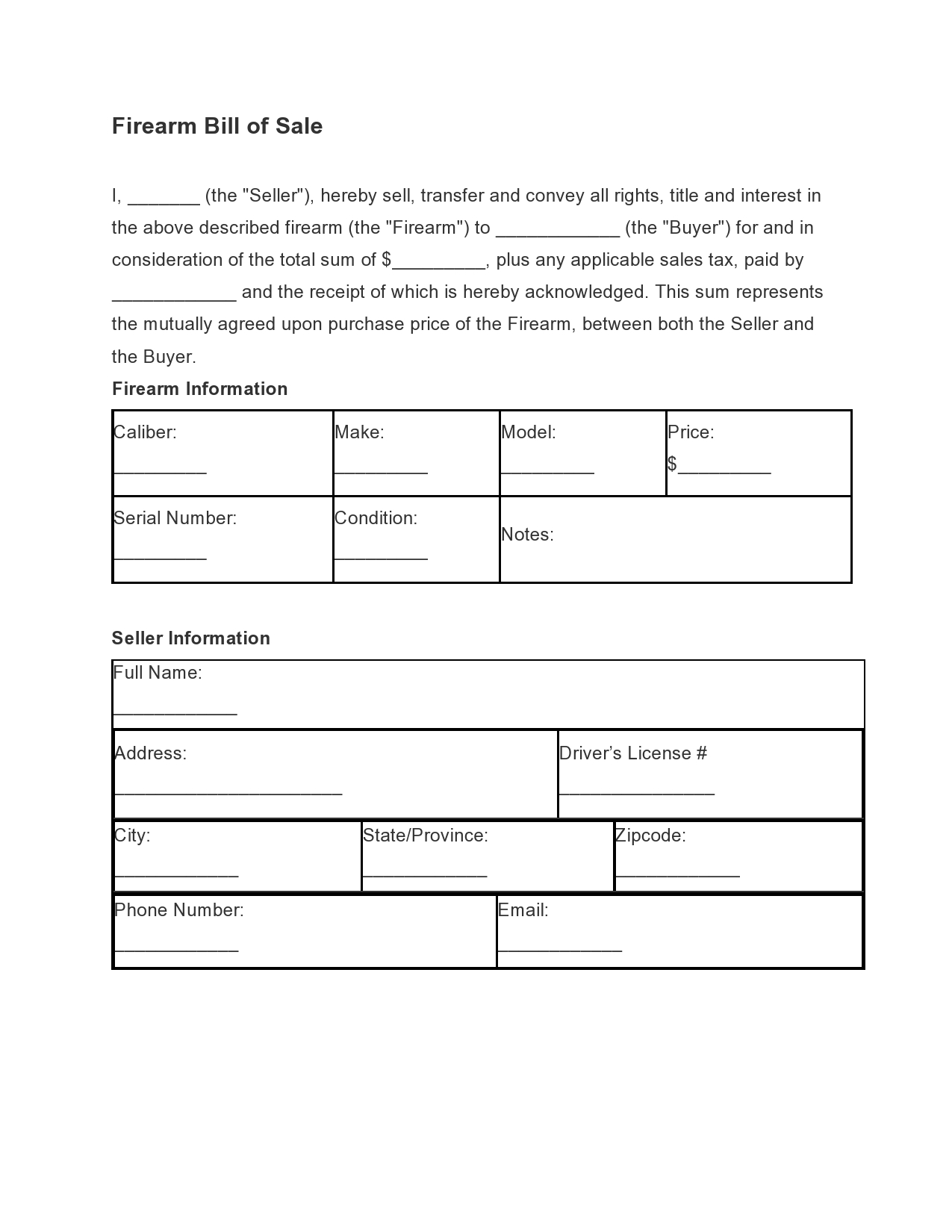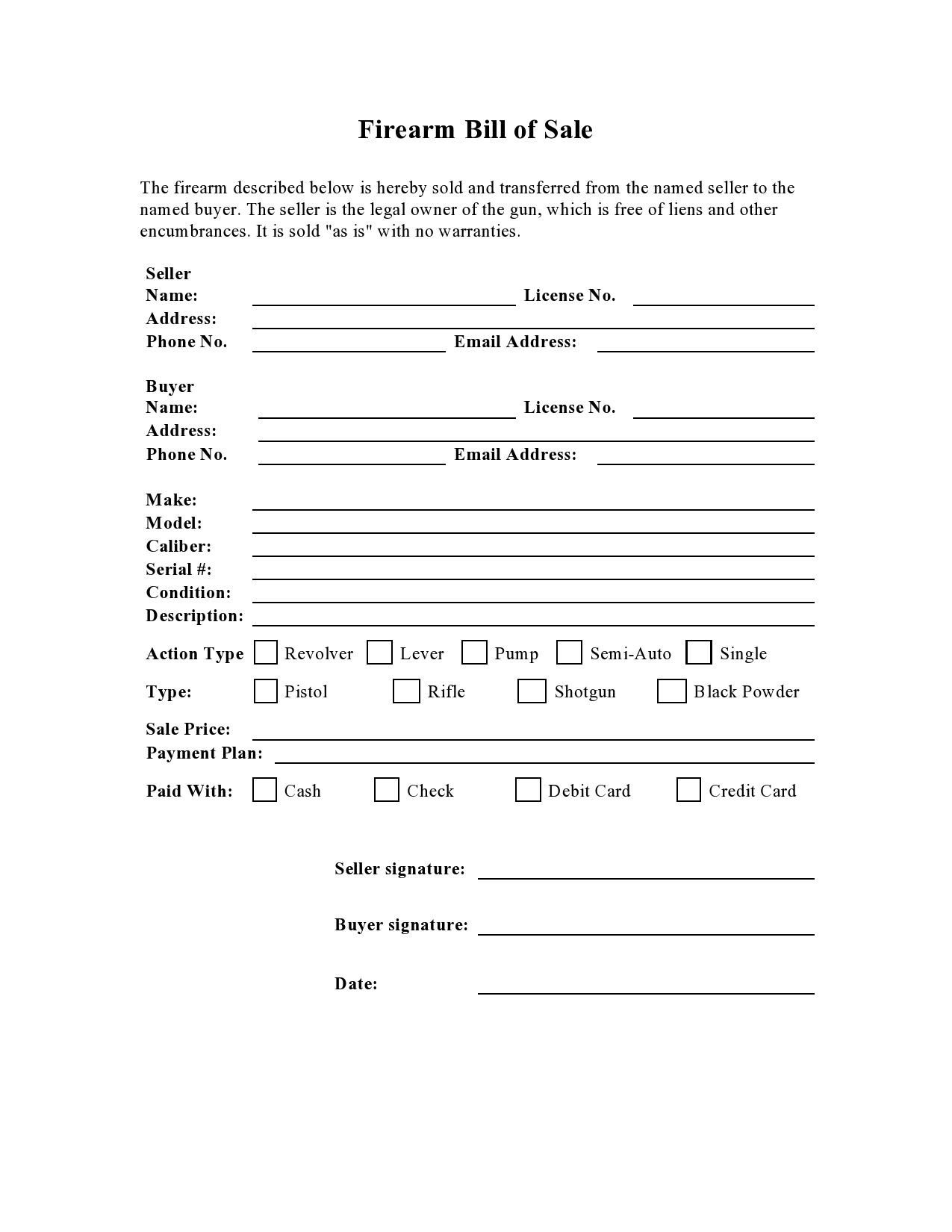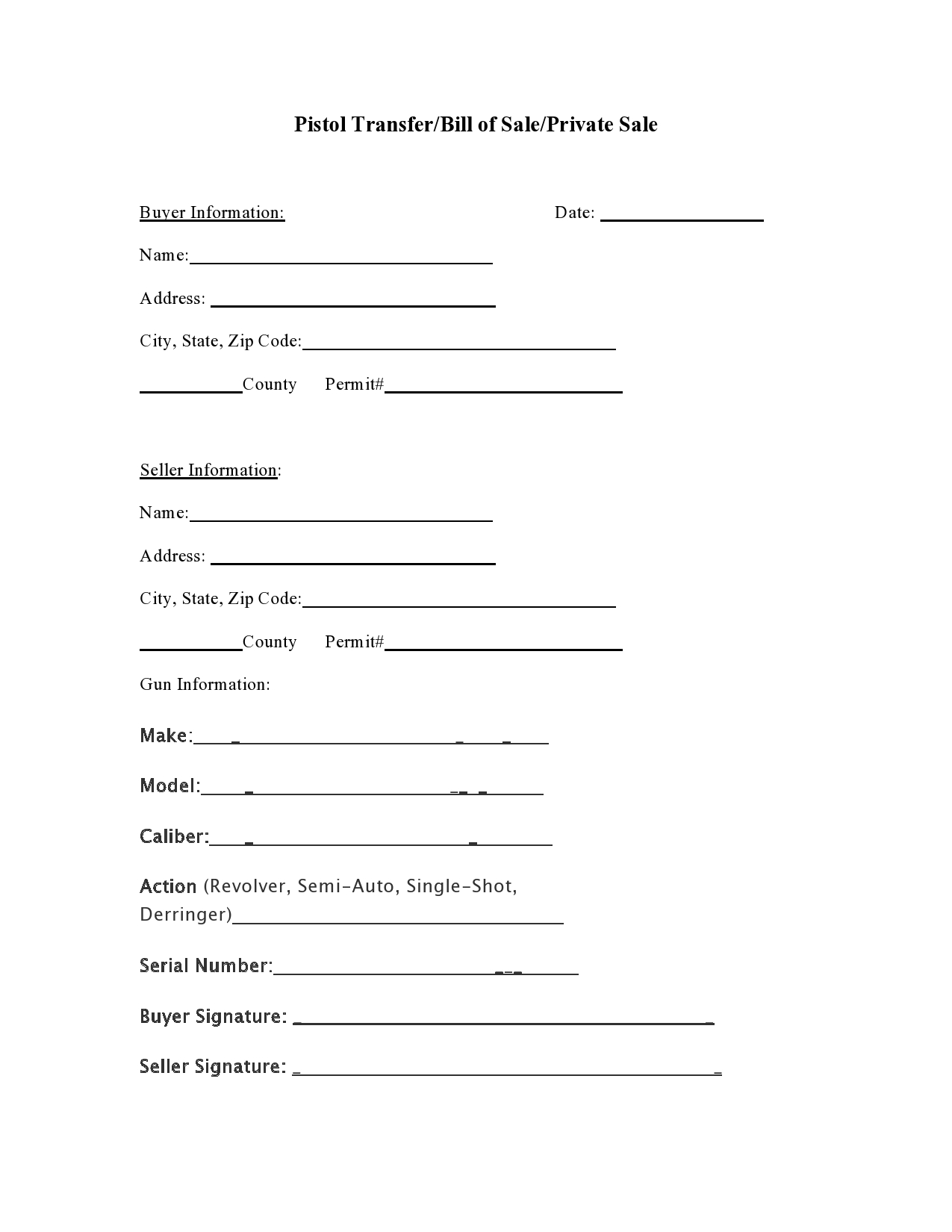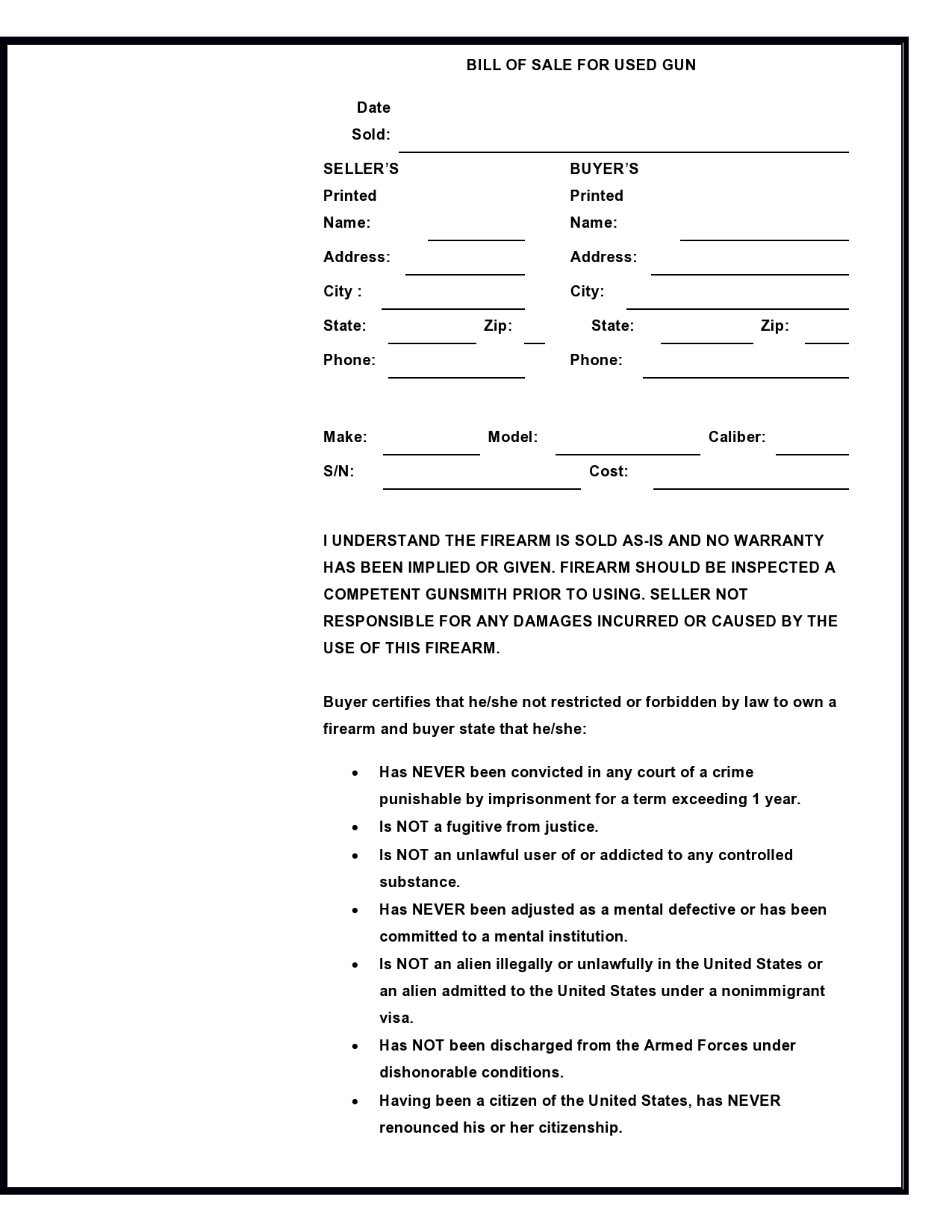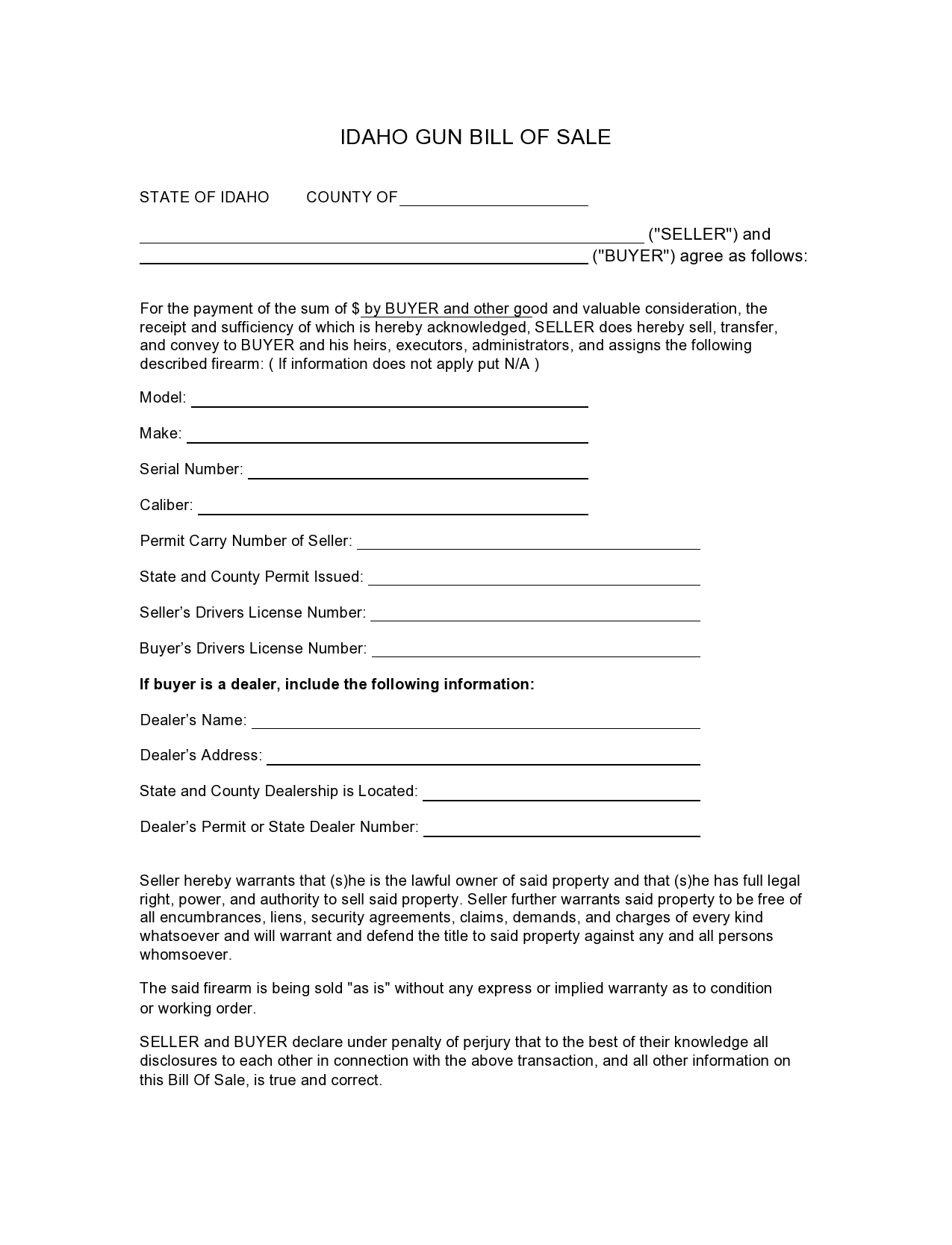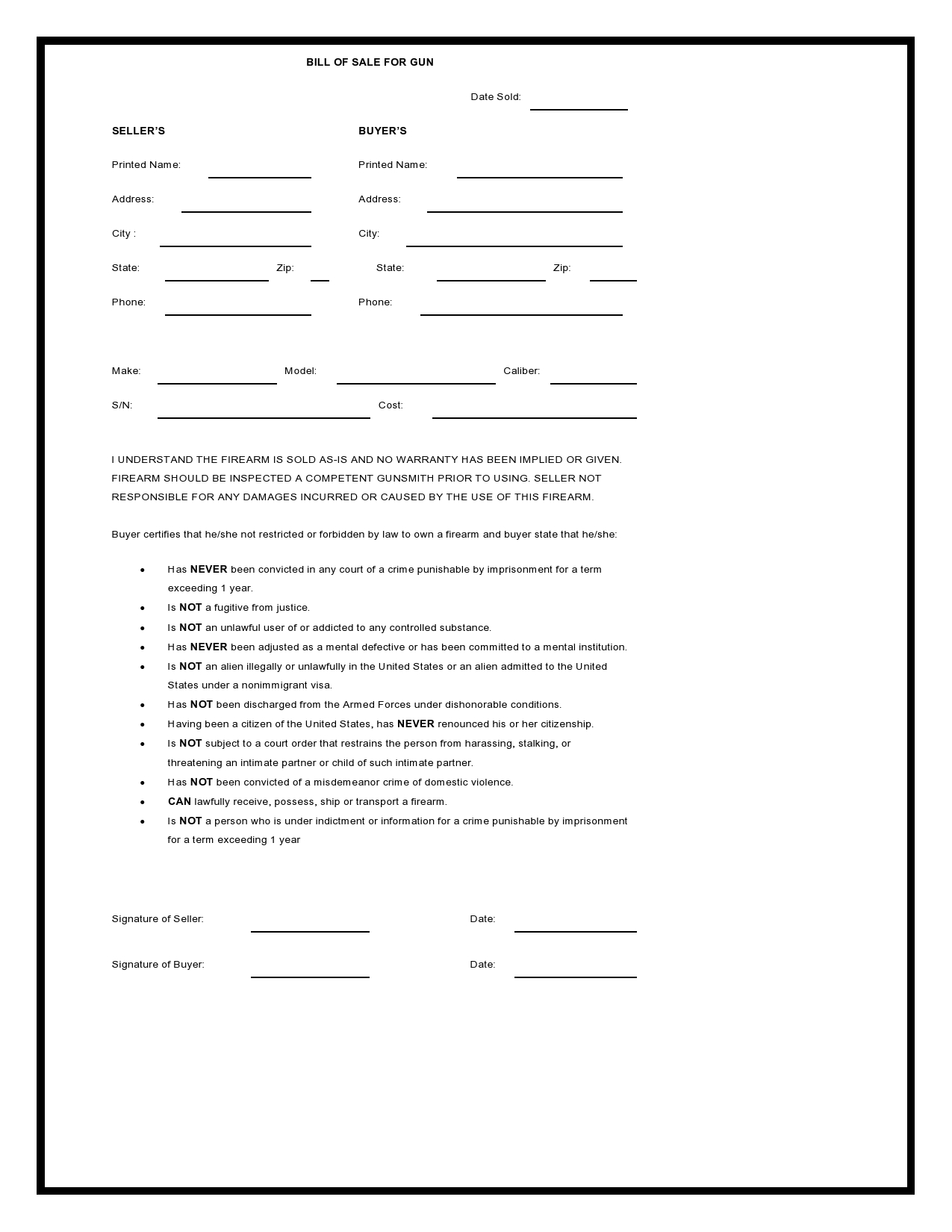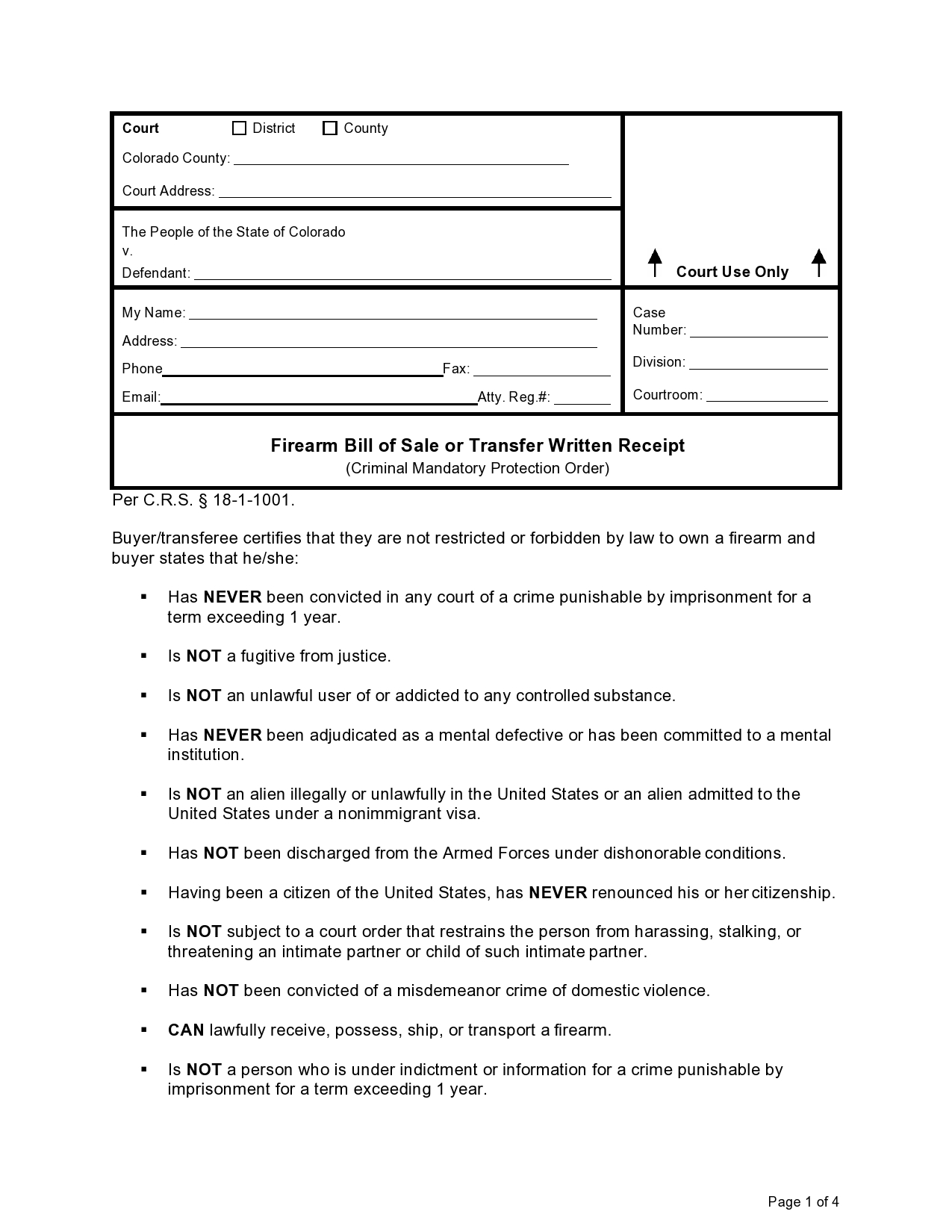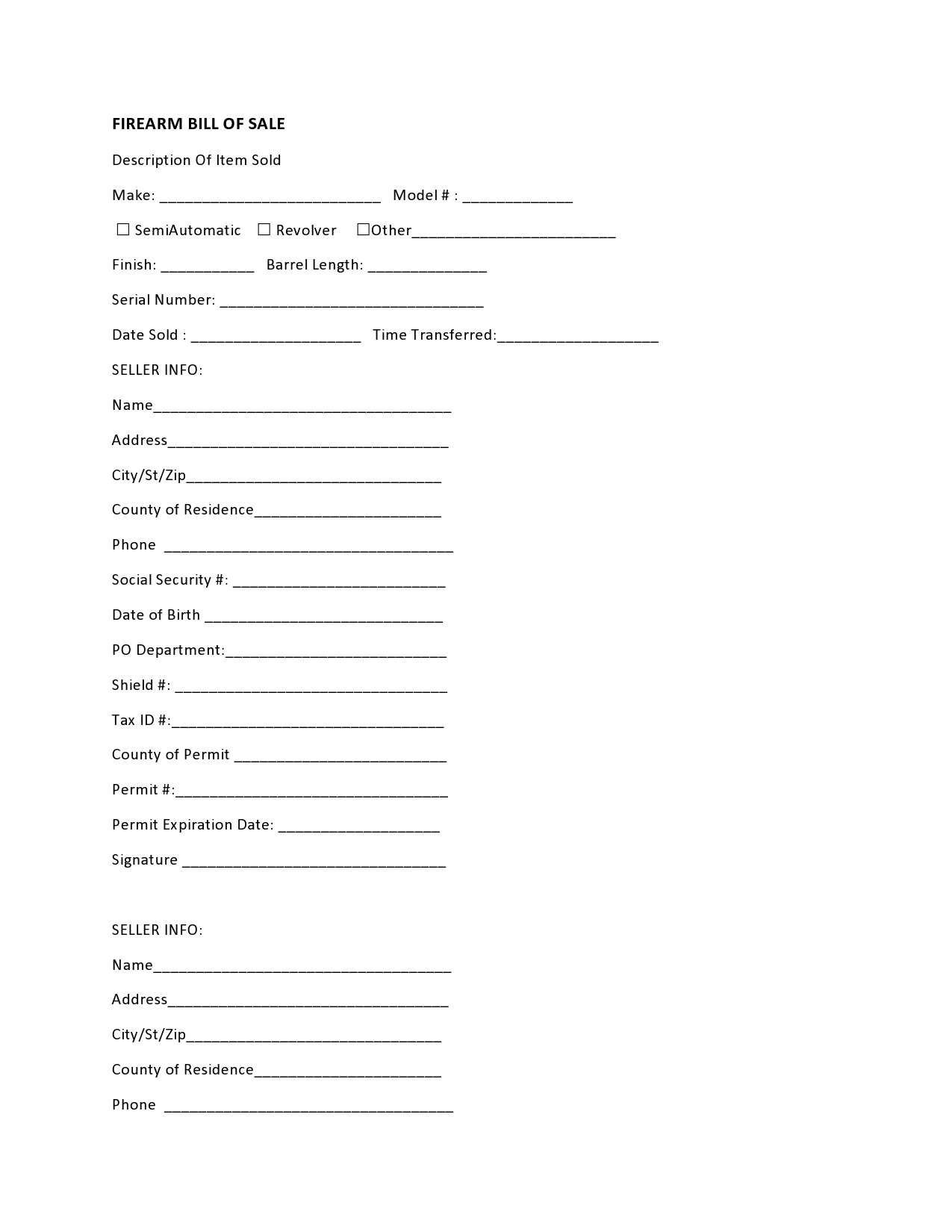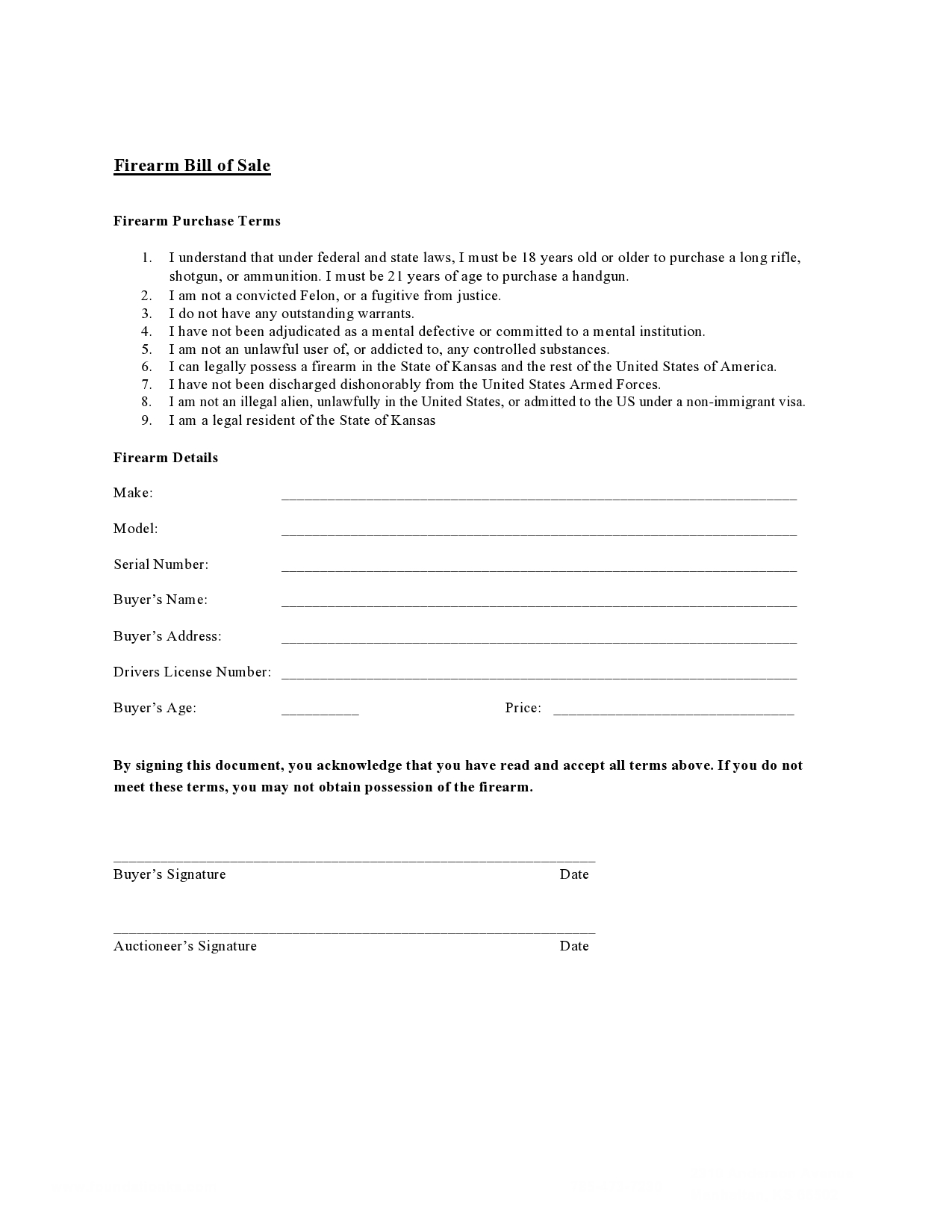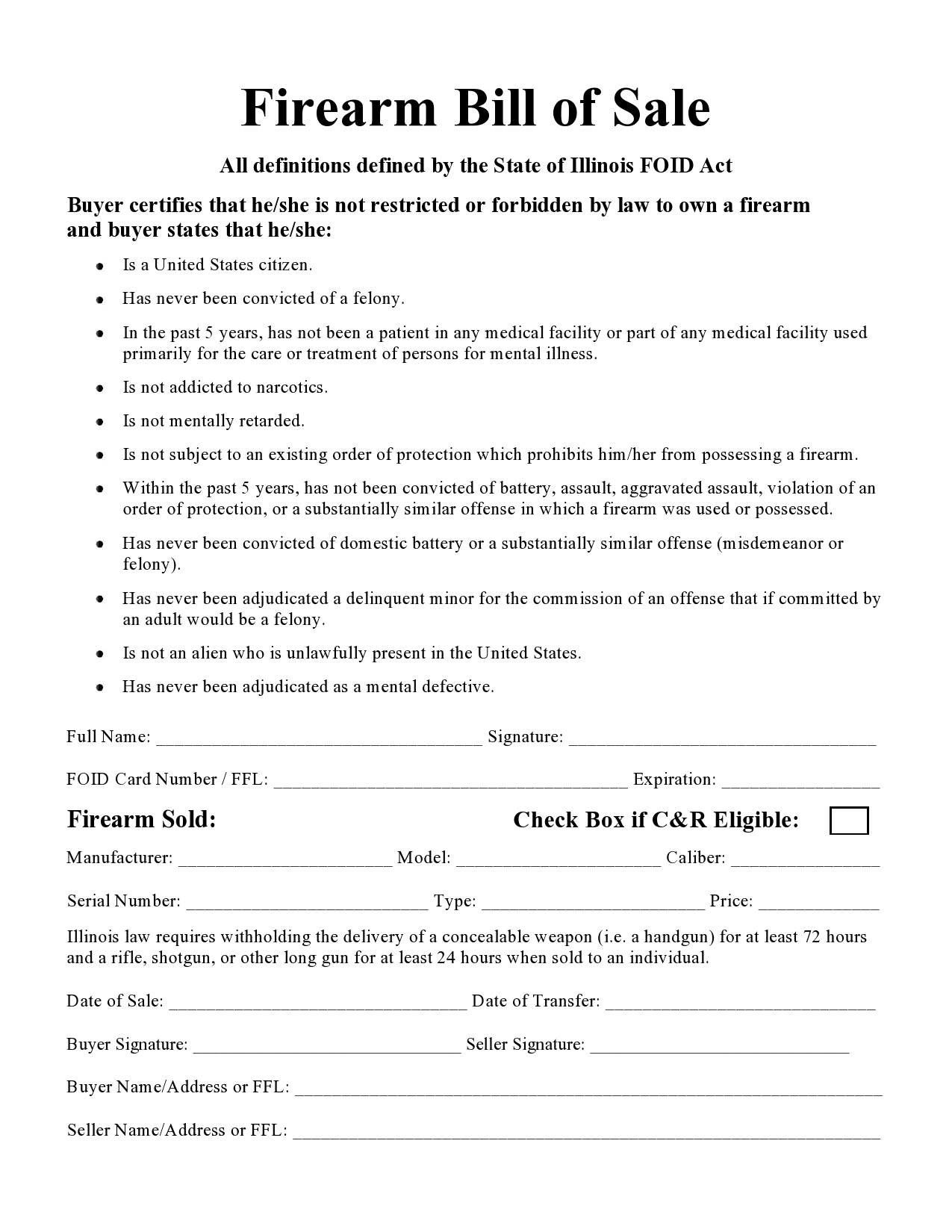Selling firearms is a process that necessitates that a quality gun bill of sale is written and signed for each transaction. Guns come with a high degree of responsibility built into their use and their trading, and you need to have a firearm bill of sale template on hand to cover your basis when you sell these items. Even if you are not a professional gun dealer or trader, you should protect all gun sales with correct documentation.
The process of creating a firearm bill of sale releases you from ownership of the weapon and can help to prove that you were not the owner of the gun in question if a crime should happen involving that weapon. This is one of the key responsibilities that can protect you from legal action or involvement in a criminal case down the road. If you have guns that you are going to sell, be sure that you at least have a handwritten bill of sale for your guns when you part with them.
By State
Table of Contents
- 1 Gun Bill of Sale
- 2 What is a bill of sale for a gun?
- 3 Am I legally required to use a bill of sale for a gun?
- 4 Firearm Bill of Sale Samples
- 5 First steps to take before writing a gun bill of sale
- 6 Firearm Bill of Sale Templates
- 7 How to write a bill of sale for a firearm
- 8 Hand-Written Bills of Sale for Gun
- 9 What does CWL mean on a firearm bill of sale?
- 10 Gun bills of sale are critical for these transactions
Gun Bill of Sale
What is a bill of sale for a gun?
The bill of sale that you create when you sell a gun to someone is the document that states that you no longer have possession of the weapon. This document also clearly states the sales price of the gun and indicates who bought the gun from you. These kinds of details can be key if the gun is involved in a crime or some kind of illegal activity or is sold to someone who is on probation or underage later on.
You will want to be certain that you are including all the personal information of the person who is buying the weapon, as well as being clear about all of your own contact information just in case there should be a dispute over the sale down the road. While you will want to create a bill of sale for any item that you sell to someone else when you sell a gun to someone else, you should always be sure that there is documentation of the sale. The legal protection that is offered to you by this document cannot be overstated should an illegal action be taken by the new owner of the gun at some future date.
Am I legally required to use a bill of sale for a gun?
A gun bill of sale is not actually required in most states, but you will need to check on the regulations and laws in your state or county before you assume that you do not need to create this document to prove that the sale took place. There are many reasons that you should always generate this kind of bill of sale when selling weapons. The following protections are offered by a gun bill of sale:
- Proof that a transaction took place and that theft or other illegal actions were not taken to gain possession of the weapon.
- The firearm was not stolen; it was sold.
- The seller willingly passed ownership to the gun buyer and no longer has responsibility for the weapon or the actions taken during its use.
- The year, make, model, and identifying marks like the serial number of the gun are in the document to identify the weapon accurately.
- The seller indicates that they bought the gun “as-is” and do not expect to have any further interaction with the seller related to maintenance or issues with the gun’s performance.
This kind of form is used at trade shows and by other kinds of merchants who sell guns for a good reason. The above indicators can make a big difference down the road if the gun goes missing or if it is involved in a crime.
Firearm Bill of Sale Samples
First steps to take before writing a gun bill of sale
There are some first steps that you need to take before you actually draft your gun bill of sale. This applies to both private sales and commercial sales.
- Check the Law. Make sure that you are familiar with the laws and regulations surrounding gun sales where you live. Make sure as well that you consider all of the consequences of selling something like a gun to someone that you do not know. You might feel sure about the person that you are selling to if they are a friend, but you might still be unable to sell to them legally in your state. The law will tell you all that you need to know about this kind of private sale and whether or not you will need to take your gun to a dealer to be sold.
- Background Checks. Make sure as well that you are not legally required to run a background check on the person buying the weapon before you sell it. In some states, this process is required, and you could be legally responsible for any illegal actions that were taken by the new owner of the gun if you did not run a background check on them before the sale. This is one of the reasons that many people use weapons dealers or salesmen to sell their weapons for them.
- Reach Out to the ATF. If you are still not sure about your ability or legal right to sell a gun to someone, you can reach out to the local contact person at the Alcohol, Tobacco, and Firearms Office in your area to find out more about this kind of sale. It is always better to be safe rather than sorry when selling an item like a gun.
- Ask to See a Gun License or Permit. It is always a good idea to ask to see a license or permit for your state that allows someone to legally own a weapon. Even if they are your friend, you should be sure that they are legally allowed to own a weapon before you sell them one. If the person is not licensed, you should not sell to them under any circumstances until they are able to show that they have a license.
Firearm Bill of Sale Templates
How to write a bill of sale for a firearm
1. Seller and Buyer Information
All the parties who are involved in buying the gun in question need to be listed on the document by their full legal names. You cannot use nicknames for anyone involved in the sale, or this can invalidate the contract. Be sure that you also collect current address information and phone numbers for the buyers of the weapon. You will also need to provide these details about yourself on the document in case the buyer needs to reach out to you. If you are selling from a store that you own, be sure that all the information for the store is correct and accurate in place of your name.
2. Property
This is the section where you indicate the gun by the make, model, serial number, and any other identifying details that are relevant to define it. You will need to indicate the condition of the gun as well so that the buyer cannot claim that you did not sell them a gun in working condition or make some other legal claim about the condition of the weapon at the time of the sale. Guns are almost always sold “as-is,” and this should be indicated in this part of the document.
Make sure that you indicate specifics like color, markings, or custom items that have been added to the gun as well. If it has upgrades like scope changes or alterations to the handle grips, etc., state this information as well. You do not want the buyer to come back to you later and say that you did not tell them about changes or modifications to the weapon at the time of the sale, and this information also helps to clearly identify the item that was sold. The more unique the weapon, the more information will need to be included in this part of the document.
For older weapons that might not have serial numbers, a detailed description will be useful, and you might want to have an appraiser place a value on the gun and state that it is authentic. You can refer to this expert appraisal for further identification of the weapon when writing this part of the contract so that there is no confusion about the details of the weapon that was sold.
3. Payment Terms
The way that you are going to accept payment will need to be indicated here, as well as the sales price. You should also state whether or not the transaction will be done as a single payment or whether it is being handled with a series of payments. Most gun sales are done with a single payment for obvious legal reasons, and you should think really carefully about allowing for more than one payment before you release the ownership of the gun to someone else.
4. Warranty
You can further clarify the state of the weapon in this section. This is important if the gun is not in working condition, is missing essential parts, or there is some other reason that the status of the gun might mean it is not in working order.
5. Date
The date that the sale took place needs to be listed in this part of the contract, and you should indicate where that sale was done as well. If you sold the gun from your home, your home address would be the stated location of sale. If you sold the gun at a store that you operate, you would use the store’s address for the sales location.
6. Signatures
You and all the parties who are buying the gun must sign this section of the contract and date the signature lines. The sale is not considered legal and final without signatures. If you miss even one person’s signature, you could be involved legally in any actions that are taken by the new owner of the gun once it is out of your possession. Legal documents need to be signed by all parties to be binding, and you should not miss this key step for the legal protection of both you and the buyer of the item.
Hand-Written Bills of Sale for Gun
What does CWL mean on a firearm bill of sale?
This is the abbreviation for concealed weapons licenses. This does not apply in all states since some states do not allow for CWL. You might not need to ask about this item when selling a weapon, but it is a good idea when selling a gun that can be easily concealed. Be sure that you think carefully about selling a handgun or some other weapon that can be concealed to someone without a CWL.
Gun bills of sale are critical for these transactions
No matter if you are a private seller or you run a gun shop and are selling weapons, you need to have a quality and correctly-crafted bill of sale that is used to finalize all gun sales that you complete. You will want to have this document on hand to provide legal protection for you as the seller and to the buyer, in case illegal actions are taken with the weapon at some future date. This document also offers proof that the sale was completed correctly and that you were not involved with the gun or in possession of it after the date of the sale.
Make sure that you include lots of detail to identify the gun in question and that you do not neglect to get legal names for all the people who are buying the gun. The more information that is included in your bill of sale, the better. You will want to have this key document on hand anytime that you sell a gun so that you can protect yourself legally should the need arise.

